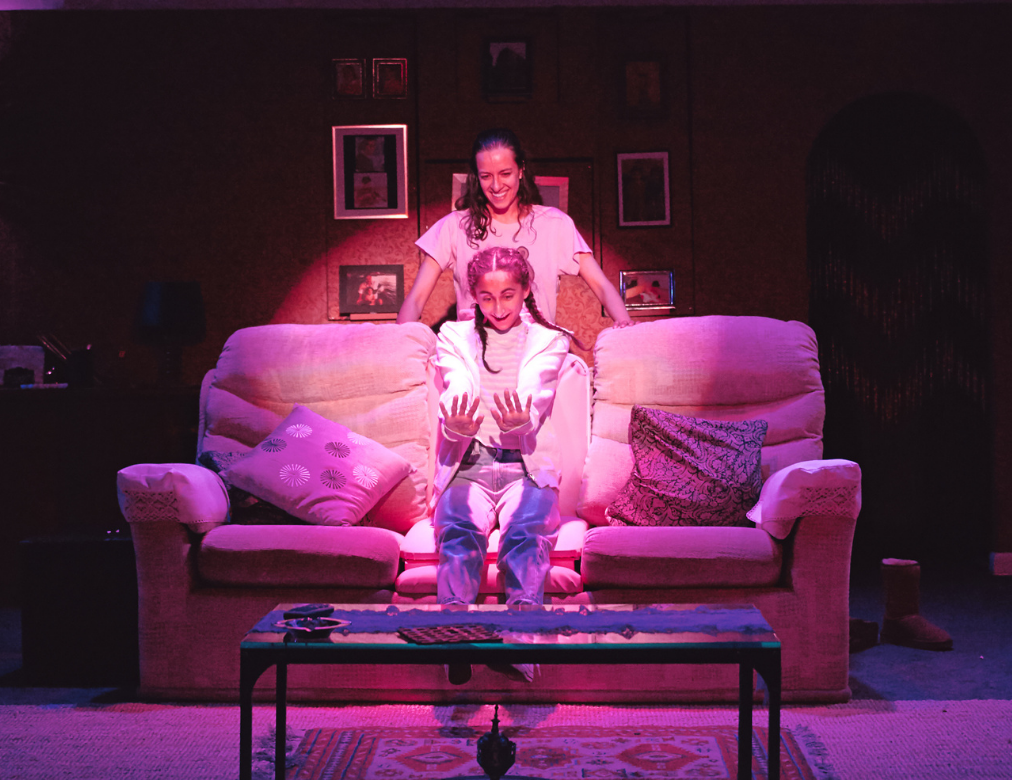
Our new play Favour by Ambreen Razia is a hopeful and touching drama following Leila, a daughter caught between her westernised mother Aleena and traditional grandmother Noor. The family navigates life as Aleena returns from prison to their home in the heart of a South Asian Muslim community in Ilford. Feeling the conflict between her mother and grandma, and pressure from either side to live life on their terms, Leila must decide what she wants her life to look like – for herself.
The duty, expectation and familial shame that comes with being a daughter are themes at the centre of Favour. While exploring these topics at Clean Break, a brilliant organisation called Home Girls Unite came to mind straight away.
Home Girls Unite are a small but impactful organisation which exists to support eldest daughters from immigrant families - ‘eldest’ not only referring to birth order, but the ‘parentification’ which many daughters experience. The organisation was formed by Hanna and Yasin, two young women who participated in the FORWARD* Young Women’s Leadership Programme. After taking part in the programme, the founders realised that eldest daughters are a group who have huge expectations placed upon them by families and communities, but are often overlooked. From this, Home Girls Unite was formed.
While Favour was in rehearsals, Home Girls Unite came to visit Clean Break’s building to meet the cast and sit down with Ambreen to discuss the play and how its themes intersect with their mission. Listen on Apple, Spotify, Google, or here:
Favour is on at Bush Theatre until 6 August 2022.
We will also be holding two post-show events during the run:
12 July – Parental imprisonment and the impact on families
Hosted by Clean Break, including Sarah Burrows, founder and CEO of Children Heard and Seen and Kate Fraser, Head of Prison Partnerships and Participation at Women in Prison and Ambreen Razia, writer of Favour.
27 July (evening) – Women, racism and cultural disparities in the Criminal Justice System
Hosted by Clean Break Co-Chair Alison Frater, including Sofia Buncy, founder of Muslim Women in Prison and Marchu Girma, CEO of Hibiscus Initiatives and Ambreen Razia, writer of Favour.
*FORWARD (Foundation for Women’s Health Research and Development) is the leading African women-led organisation working to end violence against women and girls.

Ahead of our new play Favour opening on 24 June, writer Ambreen Razia caught up with Bush Theatre, our co-producers on this groud-breaking play about a working class Muslim family. Read their story below.
Currently rehearsing at the Bush Theatre is our next show, Ambreen Razia’s Favour the world premiere of a touching and hopeful family drama that tackles duty, addiction, and the battle of putting yourself back together. Favour is co-produced with Clean Break Theatre Company, directed by Clean Break’s Joint Artistic director Róisín McBrinn and Sophie Dillon Moniram and with a cast including Avita Jay, Renu Brindle, Rina Fatania, and Ashna Rabheru.
We dropped into rehearsals to speak to Ambreen and learn more about the actress and writer from South London. Her previous work includes the critically acclaimed play The Diary of a Hounslow Girl which toured the UK before being adapted as a BBC Three pilot. Her play POT which focuses on girls in gangs and children in the UK care system toured the UK in 2018. Ambreen also co-wrote the short film Relapse which centred around reoffending after prison. Her screenplay Romani Girl was commissioned and produced by Theatre Royal Stratford East in 2020.
On radio Ambreen co-edited the BBC Radio 4 chat show Gossip and Goddesses with Meera Syal and she has been part of the BBC writers’ room and on the BBC Talent Hotlist as well as being a member of the Royal Court Writers Group. As an actress, Ambreen’s recent credits include Hounslow Diaries (BBC), Scrapper (BFI/Film 4), Black Mirror (Netflix), This Way Up (Channel 4), Starstruck (BBC), and The Curse (Channel 4). She has won awards including ‘Best Newcomer’ at the Asian Media Awards, Eastern Eye’s ‘Emerging Artist’ award, and ‘Best Newcomer' at the Edinburgh Television Awards.
Ambreen said, ‘I love telling stories, I trained as an actress and couldn’t always rely on acting to be able to do that. You spend your time walking towards a character or a story which has already been written, it’s incredible and I love it, but I also had a burning desire to tell my own, introduce audiences to exhilarating characters I’ve known and tell stories which I’ve desperately wanted to see. It’s also probably been my way of working things out in my own life and contextualising it with a character or a story. My first play ‘The Diary of a Hounslow Girl’ it opened a lot of doors for me. I’m inspired by the truth, even if it hurts a bit’
For someone who has such a contemporary style, her inspirations are wide, ‘I love the classics, Shakespeare, Lorca, Coward, stories from the Quran or religious texts, I love a contemporary play with the depth and the roaring nature of a classical, even if it’s set inside a job centre or at a bus stop. I like anything that’s written from a place of depth and necessity, even if it’s a bit messy and mad.
I remember reading ‘The House of Bernarda Alba’ and going wow! This is the only play I’ve read that captures the intensity and powerful nature of the women in my family. I’d say the main inspiration for my new play ‘Favour’ is my mother.’
Ambreen is a devoted cinema and theatregoer and raves about the Bush’s recent family drama House of Ife. ‘I love having a good old natter before the play, about life or a bit of celebrity gossip then reminding myself I’m at the theatre now and should compose myself and have a bit of class!’ Although the Favour rehearsal period means she’s spending less time at home Ambreen’s been enjoying settling into a new flat and the domesticity of cooking. ‘I’ve become a big fan of Ikea’. It sounds like another family story is being created.
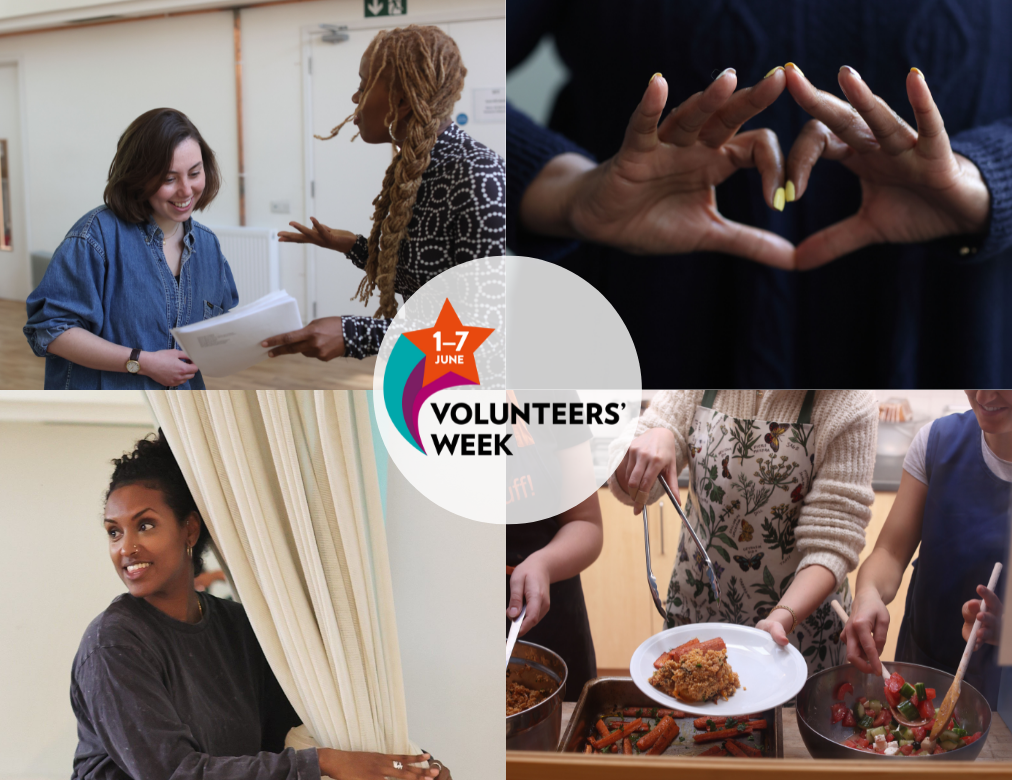
We would like to say a massive THANK YOU to our incredible community of volunteers. At Clean Break, we are proud to have an excellent volunteering programme, developed by our Volunteer Manager Sammy McNeil.
The mutual benefits of volunteering are important to us at Clean Break. We are grateful to have a group of dedicated and talented volunteers who support our ground-breaking work in a range of ways. Our volunteers provide therapeutic support for our Members, cook nutritious lunches, assist facilitators on our creative groups programme, support our team with administrative tasks, and more! Through our thoughtful and flexible approach to providing volunteering opportunities, Clean Break volunteers develop valuable skills, experience and confidence in our unique and welcoming women-only environment.
To celebrate Volunteers Week, Sammy sat down with three volunteers, Chloe, Sara and Sophie, to hear from them about what it’s like being part of Clean Break:
If you are interested in volunteering with Clean Break and would like to find out more, please get in touch with Sammy at volunteering@cleanbreak.org.uk - we would love to hear from you!
Photography by Tracey Anderson.
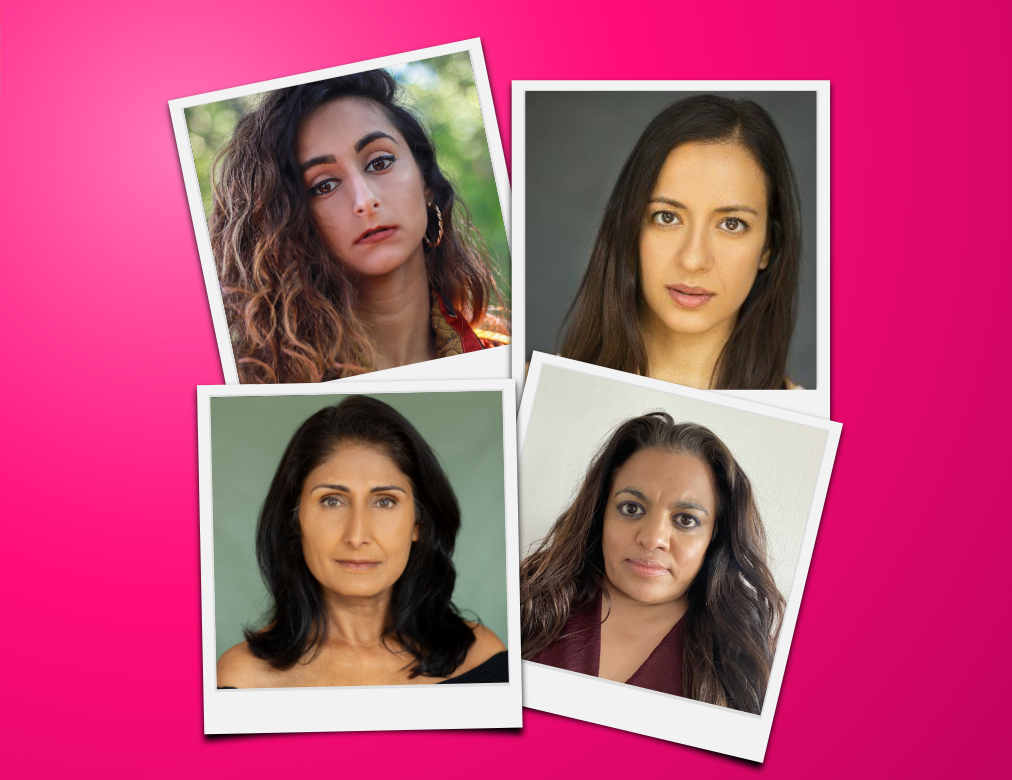
Co-Directed by Clean Break’s Joint Artistic Director Róisín McBrinn (Typical Girls, Sheffield Theatres) and Sophie Dillion-Moniram (POT, Rua Arts), full casting includes Renu Brindle (Margaret D'Anjou, LAMDA), Rina Fatania (NW Trilogy, Kiln Theatre), Avita Jay (The Comedy of Errors, RSC) and Ashna Rabheru (The Animal Kingdom, Hampstead Theatre).
‘There’s going to be some changes round here, sugar and TV allowed whenever you want’
From writer Ambreen Razia (Diary of a Hounslow Girl), Favour is a touching and hopeful family drama that tackles duty, addiction and the battle of putting yourself back together.
Leila is happy living at home with Noor, her loving but traditional grandmother. When Aleena, her fiercely independent mother, returns home from prison determined to deliver a new world of fun and excitement, their calm lives are upended in a blur of nail varnish and sweet treats. Family secrets come tumbling into the light, and Leila finds deciding on her future more difficult than she first thought.
Favour is a strikingly frank story of a working-class Muslim family in a way you’ve never seen before on stage.
Co-directors Róisín McBrinn and Sophie Dillon-Moniram: “We are thrilled to be working with such an extraordinary group of talented women, to tell this important story of four women whose lives are touched by imprisonment. We can't wait to collaborate with them to embody Ambreen’s magnificent script, exploring realities which are often untold.”
Favour will be at the Bush Theatre from 24 June to 6 August, including relaxed, captioned, BSL and audio-described performances, as part of their 50th anniversary season. Tickets are available from bushtheatre.co.uk or at the Box Office on 020 8743 5050.
Creative team
Ambreen Razia - Writer
Róisín McBrinn - Co-Director
Sophie Dillon Moniram - Co-Director
Sonum Batra - Sound Designer
Hester Blindell - Assistant Stage Manager
Sally Ferguson - Lighting Designer
Kat Heath - Design Mentor
Tabitha Piggott - Production Manager
Vicky Richardson - Casting Director CDG
Gemma Scott - Stage Manager (Rehearsals and tech)
Kala Simpson - Stage Manager (run)
Sabia Smith - Costume Supervisor
Liz Whitbread - Set and Costume Designer
Dezh Zhelyazkova - Producer
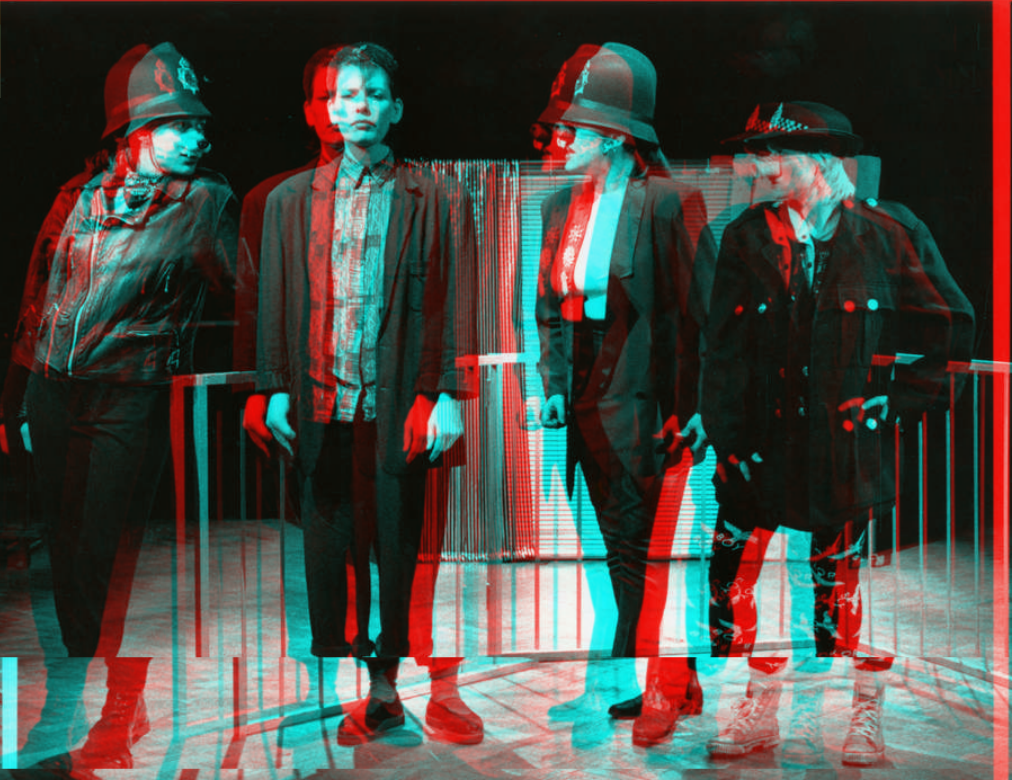
This unique online tool has been built from the extraordinary gems we unearthed during our 40th Anniversary Heritage project in 2019. We have brought this treasure trove of artifacts to life by weaving it together with the story of Clean Break. Bringing this to you in a digital format means it can be explored from anywhere in the world, at any time, allowing more people to discover the rebellious history of Clean Break and extending the reach of our legacy.
During our heritage project, we sat down with some of the incredible women who have been part of this journey, including Members, our team and Patrons, to hear about Clean Break’s impact both on their lives and on society. From these conversations, we created a video which you might have seen as part of our I am a Theatre exhibition at Swiss Cottage Gallery in 2021. We are delighted to now share this with you online for the first time.
To celebrate the launch of our new digital archive, we are also pleased to share proud moments from two women who played key roles in Clean Break’s formation and early success. Jacki Holborough is one of the theatre company’s founders, and Ann Mitchell is an actor and director, who was instrumental in Clean Break’s journey.
Jacki Holborough on being the first group of serving prisoners to perform outside of prison:
“There are so many proud moments, but I guess the first time that, when we were still serving prisoners, we went to play [Efemera, an original show] to the public at the York Art Centre. A group of twenty women, most of them never been in a theatre, it was just wonderful. We did a two hour show and we’d written it ourselves, directed it ourselves. It brings tears to remember just how proud, happy and joyful it felt. It was such a success.”
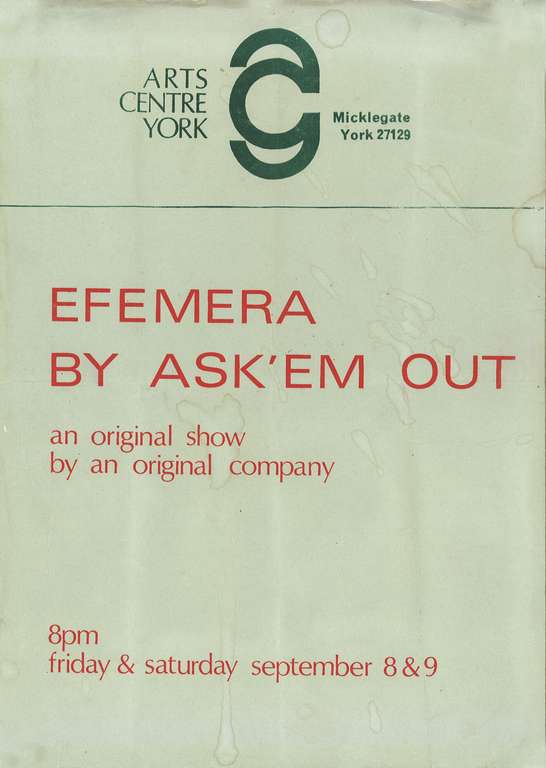
Clean Break Efemera by Ask 'em out programme 1978 / Clean Break Digital Archive
Ann Mitchell on directing the original Voices from Prison with the Royal Shakespeare Company (RSC):
“When I was acting at the RSC, I was asked if I would direct one of their first platform performances. Now, most of the actors understandably wanted to direct themselves in different plays or different scenes, but I didn't want to do that. I felt that the RSC, what I had experienced when I was there, was a sense of elitism so I wanted to bring in Clean Break.
The team, Clean Break women, wrote to prisons and got information and poems, just like the new Voices from Prison, which I think is wonderful. I had about 20-30 people on stage. We inherited the most amazing set, it just was like the gods had smiled on us, it was a set of trees and I placed all the actors in them, all wearing black with the occasional flash of red. They all had about four to five lines to learn, professional actors as well, and that's what we did, and it was remarkable.
I was so pleased, and very touched that Jenny [Hicks] had said in some ways that was the beginning of Clean Break being acknowledged in a wider world, and it was certainly the beginning for the RSC of having the community in - the critics said ‘the RSC opens its doors to the community’.”
.png)
Voices From Prison, Barbican, 1987 / Clean Break Digital Archive
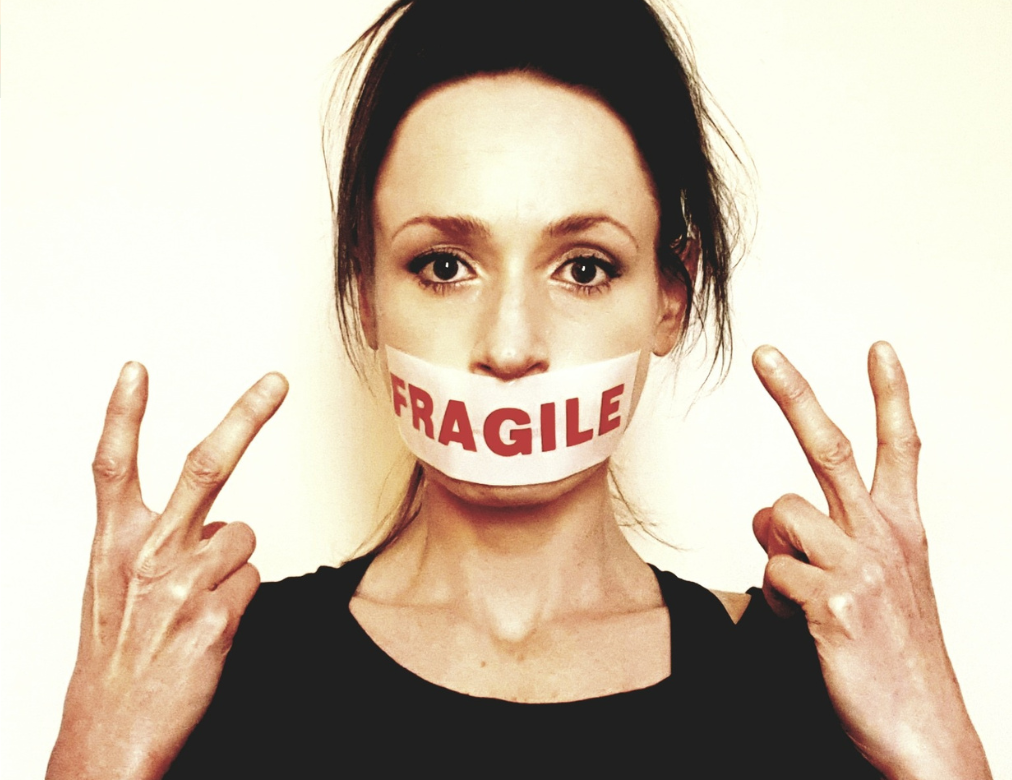
The theme of this year’s Mental Health Awareness Week is isolation. The lockdowns of the past two years have brought this to the forefront of more people’s consciousness, and for the many people who isolation was already a part of life, the affects were amplified. For women in prison or other secure settings, isolation was and continues to be devastating, with the effects also felt sharply for women in the community who already experience mental ill health.
To mark Mental Health Awareness Week this year, we are sharing Lara to watch online until Tuesday 17 May. This short film was created by Clean Break Member Artist Sarah Cowan and artist Deborah Bruce in the first lockdown, as part of Clean Break’s 2 Meters Apart project, and follows a woman who has experienced complex mental health distress.
2 Meters Apart was set up during the first lockdown to give our Members, women with experience of the criminal justice system or at risk of entering it, a creative outlet and an opportunity for connection during an extremely isolating time.
Some of the themes in the film might be difficult to engage with, particularly if you are personally affected. For this reason, we have created a self-care guide containing content warnings, which we would recommend you read before watching the film.
Available online until Tuesday 17 May.
Deborah Bruce and I started writing together for 2 Meters Apart at the very beginning of the pandemic. All we were given is the title, with no pressure or expectation of a result - we didn’t even know at that point if theatre would ever exist again. We wrote over Zoom, email and WhatsApp, and all of the filming was done on our phones.
2 Meters Apart offered a creative haven in which we could share experiences and reflect on the state of the terrifying world around us in the height of the pandemic.
Creative collaborations definitely reduce feelings of isolation because you connect and work together in such a unique way. Consistency and feeling safe are important too, which, like the writing groups at Clean Break, made it feel like a port in a storm. It gave me a focus when everything was so uncertain, and support and encouragement to try and find my voice and keep going. I believe nurturing human connections through creativity and storytelling is valuable to everyone's mental health and understanding one another is vital to society. Because, when the world falls apart around us, all we have is each other, and no woman is an island.
So, Lara was made during lockdown, a time when the world seemed unreal and frightening when we were kept in our homes and away from loved ones, where conspiracy theories were rife, and relationships were strained in pressure-cooker environments. Some of the things Lara lives with on a daily basis.
Lara is the story of someone who struggles to cope with her experience of the world, her thoughts, her feelings, and her relationships. She finds it impossible to manage and communicate her distress and has become enmeshed within the mental health and criminal justice systems.
The inherent trauma caused by living in theses environments and persistent systemic failings, along with inadequate support, keep her trapped in a cycle of destruction. At this point in her story, she has to move in with her mother after being released from a psychiatric ward to the care of ‘the nearest relative.’
Our digital short aims to capture snapshots of Lara’s world and is part of a much bigger story.
Sarah Cowan
Deborah Bruce
Helena Lymbery
Fiona Whitelaw
Catherine Rose Evans
Patch the dog
and to all at Clean Break for supporting this film.
With thanks to Arts Council England, DCMS, National Lottery Community Fund and Camden Giving.
Additional thanks to Jerwood Arts and The Garrick Charitable Trust for their support of new writing at Clean Break.
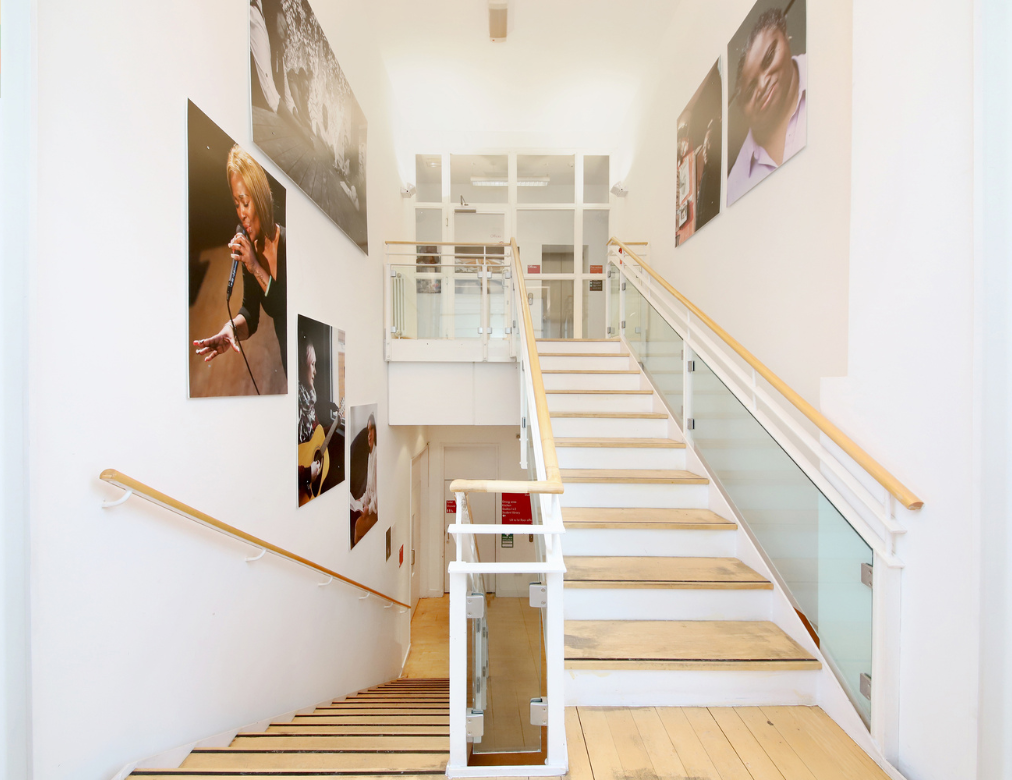
Over the next three years, we’ll make some big changes: we’re going to make our building more accessible, including working with our Members to embed trauma-informed design; we’ll upgrade our on-site tech; and we’ll work to improve the environmental sustainability of our building.
This has all been made possible by a grant of £232,500 from Arts Council England’s Capital Investment Programme. As part of these 2021-22 and 2022-23 grants, over £22.7 million has been awarded to 66 cultural organisations across the country, including Clean Break. The Capital Investment Programme aims to help cultural organisations across the country transform their buildings and equipment so they can operate safely post-pandemic, improve access, seize technological opportunities, and reduce environmental impact. From Barrow-in-Furness to The Isles of Scilly, the organisations receiving funding share a vision to build a fit for the future cultural sector, which all members of their communities can access.
Darren Henley, Chief Executive, Arts Council England said “World class creativity and culture needs a resilient and sustainable infrastructure to allow it to flourish. With these investments in the buildings, equipment, and digital systems of cultural organisations across England, we are helping to secure the future of that infrastructure, and making sure that people from every part of the country can continue enjoying all the benefits it delivers for years to come.”
Clean Break’s Leadership Team, Anna Herrmann, Erin Gavaghan, and Róisin McBrinn said “Our home is a vital safe and creative space for the women we work with, and this investment is significant as we mark 25 years in Kentish Town. We are excited to transform it for the future, fore-fronting access, care and environmental sustainability and working with our community to realise these ambitions. Inclusion and justice are at the heart of our work and improving our building in this way will support us to achieve the positive change we envision.”
A huge thank you to Arts Council England on behalf of everyone at Clean Break, we can’t wait to start this journey.
Join our mailing list and get Clean Break news to your inbox
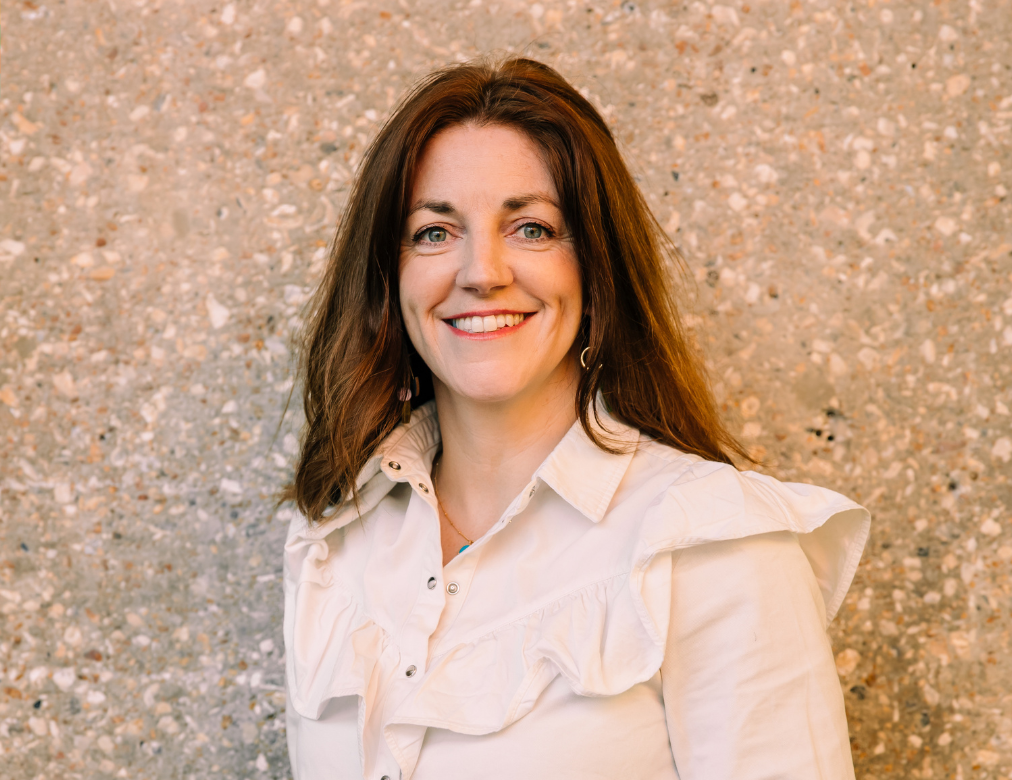
For the past eight years Róisín has been an integral part of Clean Break, joining us in 2014 as Head of Artistic Programme, and becoming Joint Artistic Director alongside Anna Herrmann and Erin Gavaghan as Executive Director, four years later. As part of the leadership team, Róisín has developed our company as a major force in producing new writing, commissioned and directed ground-breaking plays including Typical Girls by Morgan Lloyd Malcolm and Blis-ta by Sonya Hale, and brought our Members into the heart of Clean Break’s work.
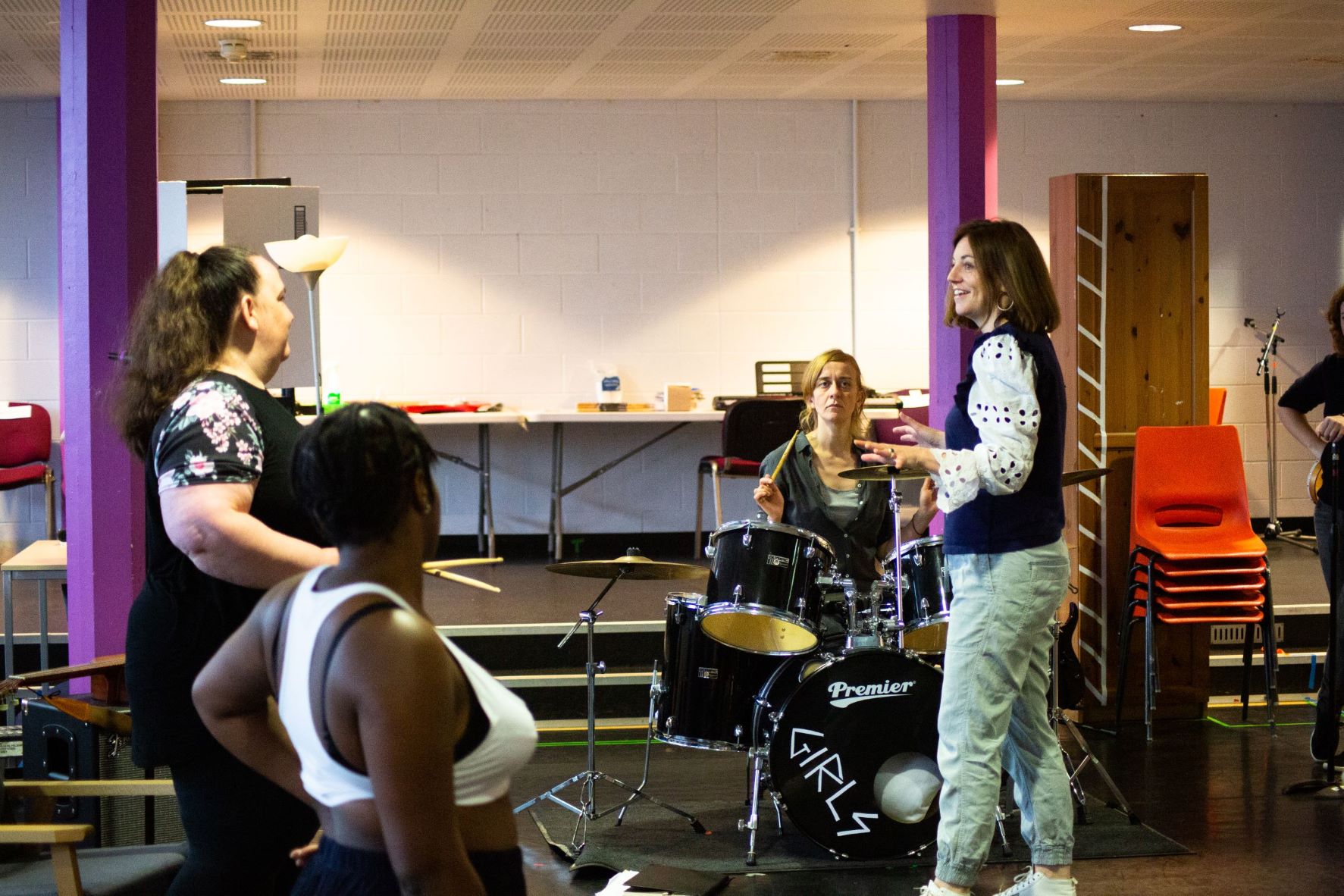
Róisín McBrinn in rehearsals for Typical Girls, 2021 / Lucy Smith-Jones
.jpeg)
Róisín McBrinn and Ambreen Razia recording Blis-ta at the National Theatre, 2020
We are very excited to see what this next chapter in Róisín’s artistic career will bring, as she joins The Gate Theatre, a venue with such a significant role in the Irish cultural landscape.
While Róisín’s departure will be a huge loss to Clean Break, we are energised by the pipeline of work which has been generated by Róisín and Anna Herrmann as Joint Artistic Directors. The next 18 months of activity and partnerships at Clean Break are a testament to the legacy of Róisín’s time here, which we will continue to build on after she steps into her new position in August.
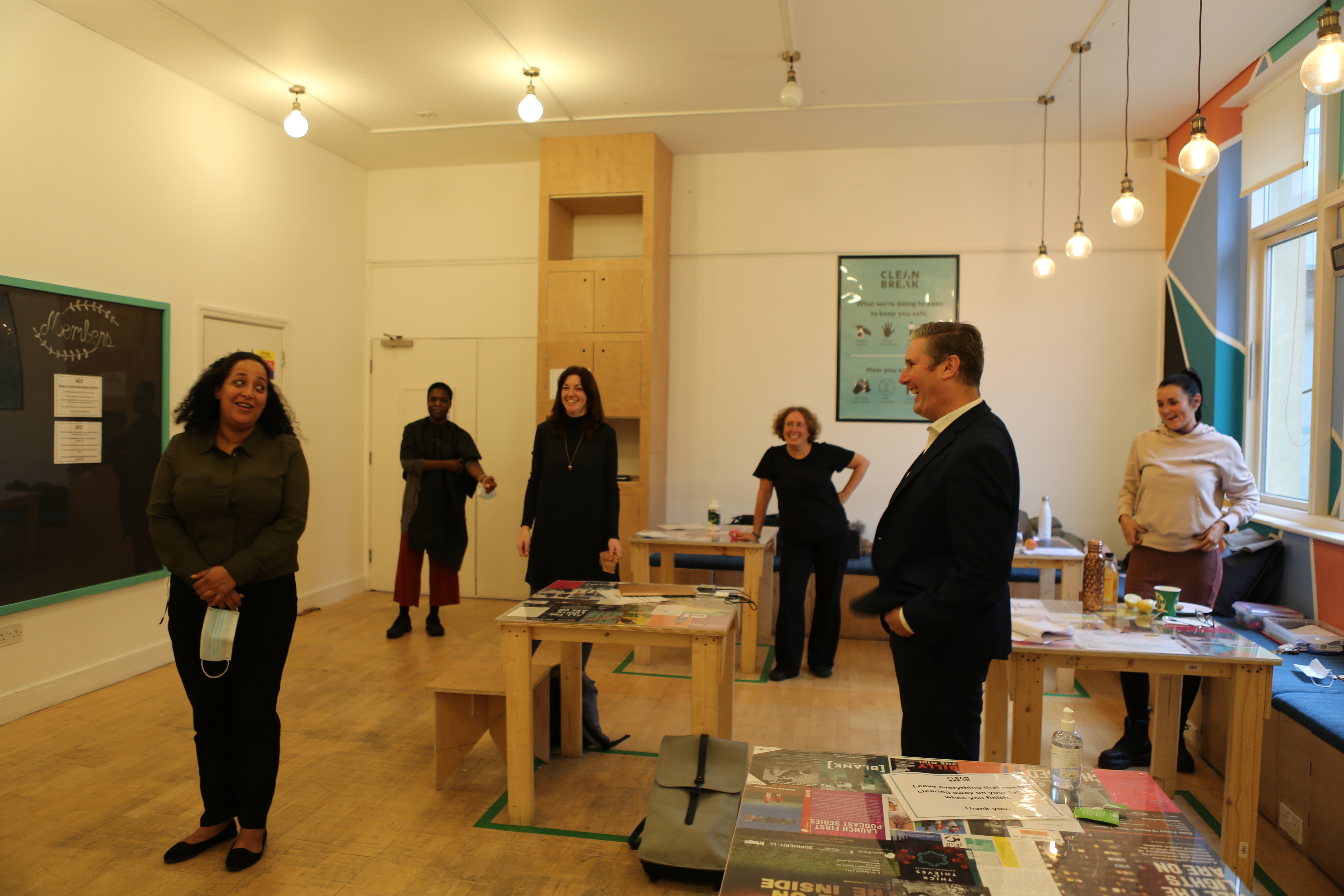
Róisín McBrinn at Keir Starmer visit to Clean Break office, 2020 / Olivia Chancellor
Róisín McBrinn: 'It's been a huge honour to jointly lead Clean Break for the past four years and to have worked here for eight. Huge thanks to our brilliant Board, the amazing Anna Herrmann and Erin Gavaghan whom I have led alongside, our wonderful staff team, all the artists and partners we collaborate with and of course, our Members. Working at Clean Break has taught me an immeasurable amount and it has been the most fruitful, formative and joyful time of my career. I will miss the whole community, but I am so excited to pass the baton on and see this vital, brilliant company morph and grow in someone else's hands.'
Alison Frater and Tanya Tracey, Co-chairs of Clean Break Board: ‘Róisín has been a solid creative foundation for Clean Break and a dynamic powerhouse for change. Working with our Members, she seized every opportunity to enable artistic expression, to inspire new writing and to support freelance artists. She jointly delivered the company's aspiration to grow its theatre-making roots, producing unique and excellent work. She worked tirelessly as part of the leadership team over the pandemic years finding innovative ways to ensure the voices of women affected by the criminal justice system were heard. There was also an astonishing number of debates, workshops, training events and talks online reaching out to audiences, finding expression for those most affected by the pandemic and driving high profile advocacy for ending the incarceration of women, tackling racism, inequality and injustice. She leaves the company with creative work for main stages in the pipeline and a legacy of achievement that will be difficult to replace. We thank her with all our heart and wish her well for the future.’
Erin Gavaghan and Anna Herrmann: ‘Jointly leading Clean Break with Róisín for the last four years, we have faced some extraordinary times together, and we are proud of the bold, ambitious and courageous company we are today. We will hugely miss Róisín’s vision, friendship, passion and unswerving commitment to justice and to joy. We wish her every success as she continues her career and look forward to seeing her continue to make beautiful theatre. Her contributions to our future plans will be a legacy that we are excited to build upon as we move ahead.’
.jpg)
Róisín McBrinn at Thick as Thieves read-through with company, 2018 / Theatr Clwyd
As we prepare for Favour, our summer 2022 production with Bush Theatre, we are pleased to confirm that the play will still be directed by Róisín, with co-direction from Sophie Dillon-Moniram.
Róisín will also be directing our spring 2023 production Dixon and Daughters, at the National Theatre. Tickets on sale now.
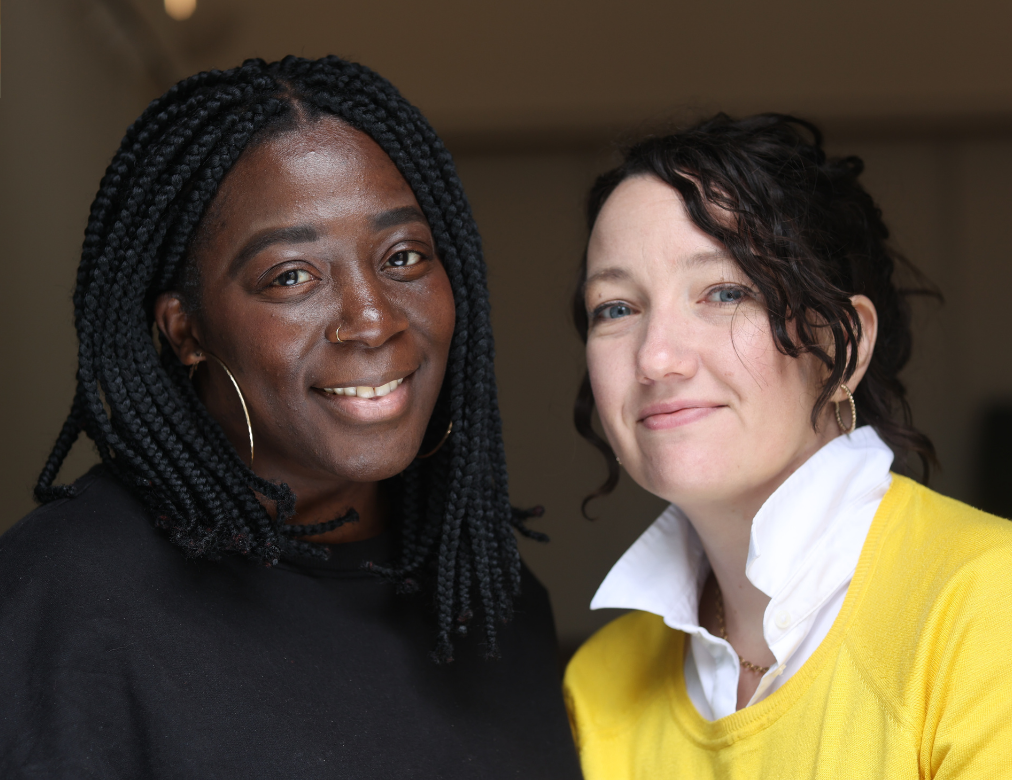
“We are absolutely thrilled to be joined by Rachel and Titilola as our two new Creative Associates, who will be working with us for the next 18 months. They both bring rich experience of theatre - through directing and dramaturgy - and of prioritising care and inclusive practices which will hugely serve our ambitions at Clean Break. Both artists will be working closely with our Members to extend the pathways available to them into the industry and supporting our commissioned artists. They will also work across our team, to diversify and enrich our approaches and artistic output.” Anna Herrmann and Róisín McBrinn, Joint Artistic Directors.
Titilola’s work spans across arts and cultural, charity and youth sectors, where she enables Black people, specifically Black women, and people from the global majority to thrive and show up as themselves. Titilola is part of Black Womxn in Theatre, the team behind the iconic #WeAreVisible photoshoot of over 250 Black women and nonbinary people in theatre, at the Globe in 2019. During the pandemic, Black Womxn in Theatre also partnered with Eclipse and Bush Theatres in creating a four-week redundancy recovery care programme.
With Tamasha Theatre Company, Titilola co-created and edited Hear Me Now Audition Monologues for Actors of Colour, published by Oberon Books. The second volume of Hear Me Now is currently in development and will be published this summer.
“I’m excited to continue to champion the artistry, voices, identities of people who are often left out but have so much to bring to the table. Here, women are encouraged and supported to give themselves permission to thrive, exist loudly and contribute to theatre. I’m looking forward to being a part of their journey.” Titilola Dawudu.
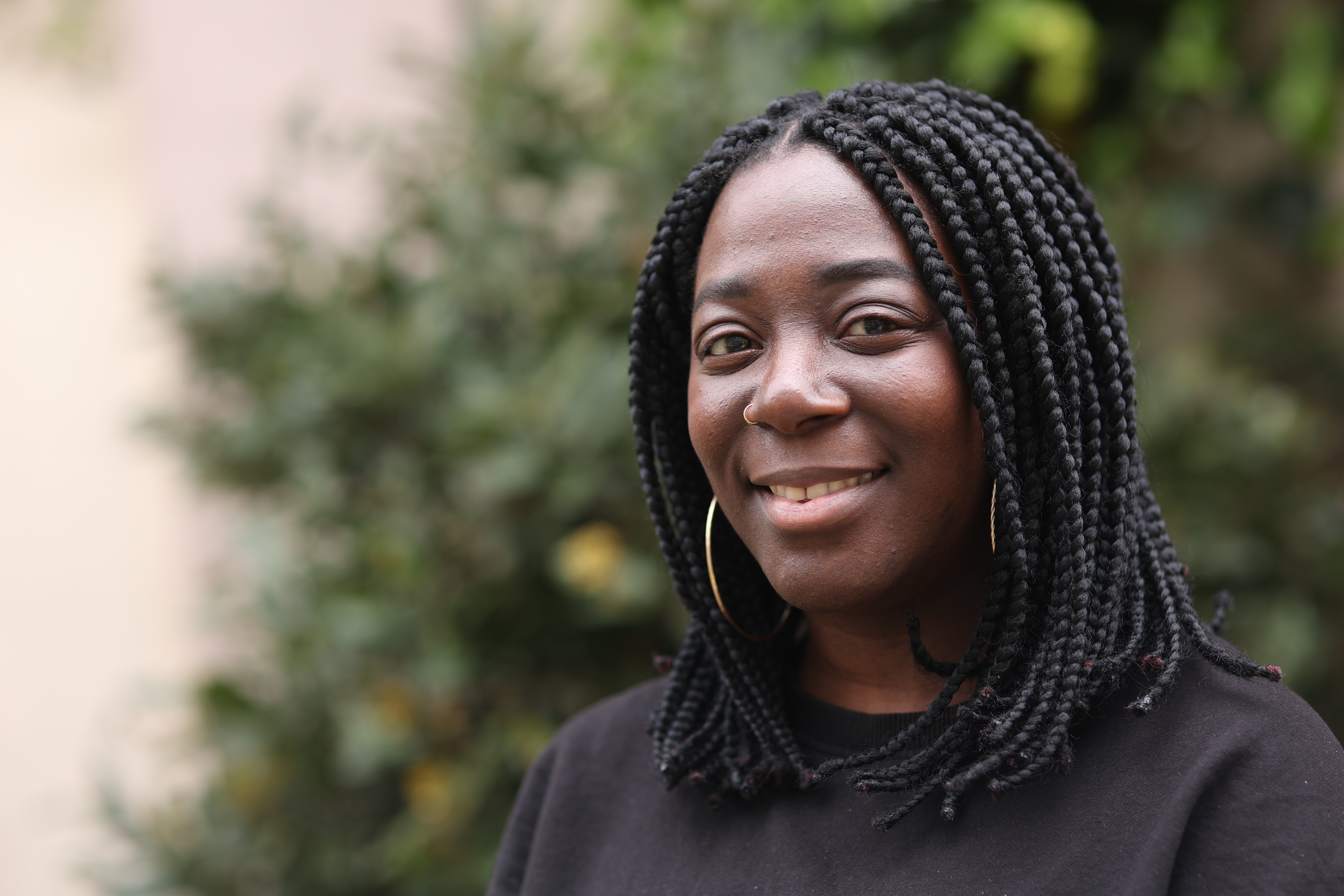
Titilola Dawudu in Clean Break's garden / Tracey Anderson
Rachel is a director, artist and facilitator working across the UK and internationally. Her work includes reimaginings of the classics, regular collaborations with emerging and established writers from the UK, Kosovo, Afghanistan and Lebanon, and cross discipline events and installations. Rachel was co-artistic director of The Faction ensemble for six years and directed work commissioned by New Diorama Theatre, Stephen Joseph Theatre, The Lowry and the British Council.
Rachel’s debut short films, My Last Dutchess and Medea / Worn, were commissioned by The Lowry in 2021 and have been included in ten festival selections across the globe. Rachel has worked extensively with collaborators in Lebanon and produced events in support of English PEN, The Black Curriculum and the Theater Relief Group Lebanon.
“As a company that it is led by the change it wants to see, through kindness, creativity and passion I am so honoured to be joining the Clean Break team, working alongside Titilola Dawudu. The opportunity to bring my experience of co-creation, collaboration and facilitation, and a practice of care is deeply exciting. The legacy of change that Clean Break holds demonstrates the power that theatre can have, most importantly for the women we champion. I look forward to supporting this work in all that we do.” Rachel Valentine Smith.
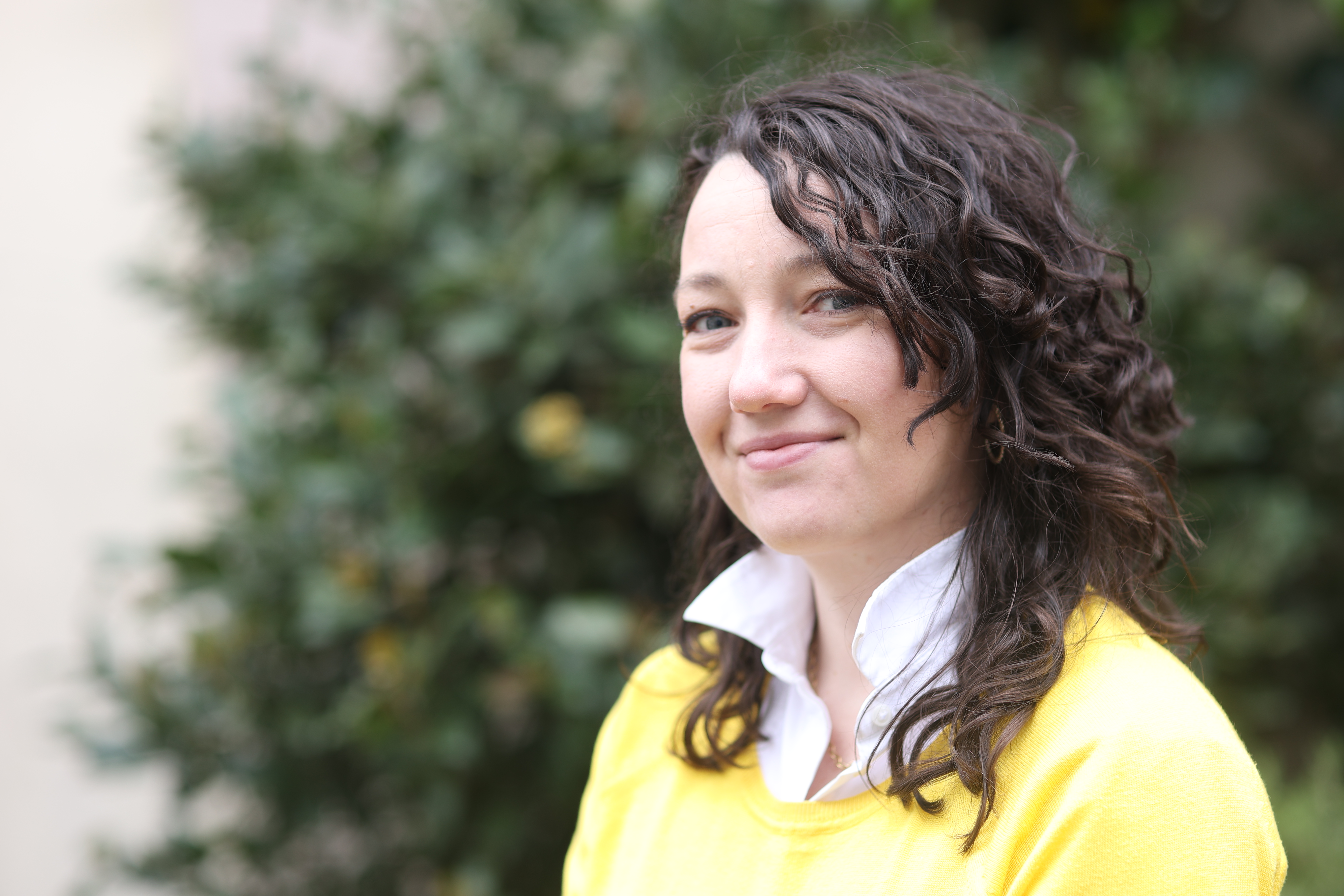
Rachel Valentine Smith in Clean Break's garden / Tracey Anderson
Alongside the addition of Titilola and Rachel, existing Clean Break team members Maya Ellis and Dezh Zhelyazkova have stepped up into Producer roles, giving us a full creative team. Dezh, previously Assistant Producer, was promoted in December, and following an externally advertised recruitment process earlier this year, Maya has moved from her role as Executive and Producing Assistant to become our second Producer.
We are so pleased to have a complete creative team made up of talented women, who each bring their unique perspectives to Clean Break. This all comes at an exciting time, as we prepare for our summer production, Favour at Bush Theatre.
Photo credit: Tracey Anderson
We are delighted to announce that our board of trustees have been shortlisted for the Charity Governance Awards, in their Equity, Diversity and Inclusion category.
This recognition of our board’s commitment to developing our practise and creating a more equitable organisation, particularly in terms of anti-racism, is well deserved.
"Our creativity is empowered by diversity; co-production is a central tenet of all our work, and inclusion is the driving force of our board."
Ensuring that our board represent and understand the diverse community of women we engage with is very important to us at Clean Break. We are proud to have a number of trustees with lived experience of the criminal justice system or who have accessed our Programme, and have undertaken a Lived Experience Trustee training programme to identify and develop future trustees.
Our fantastic board has built a strong organisational foundation on which we can build, and work towards creating equity beyond Clean Break, becoming advocates across the arts sector.
We are very grateful to the Charity Governance Awards for this recognition, and are honoured to be nominated alongside other organisations doing incredible work.
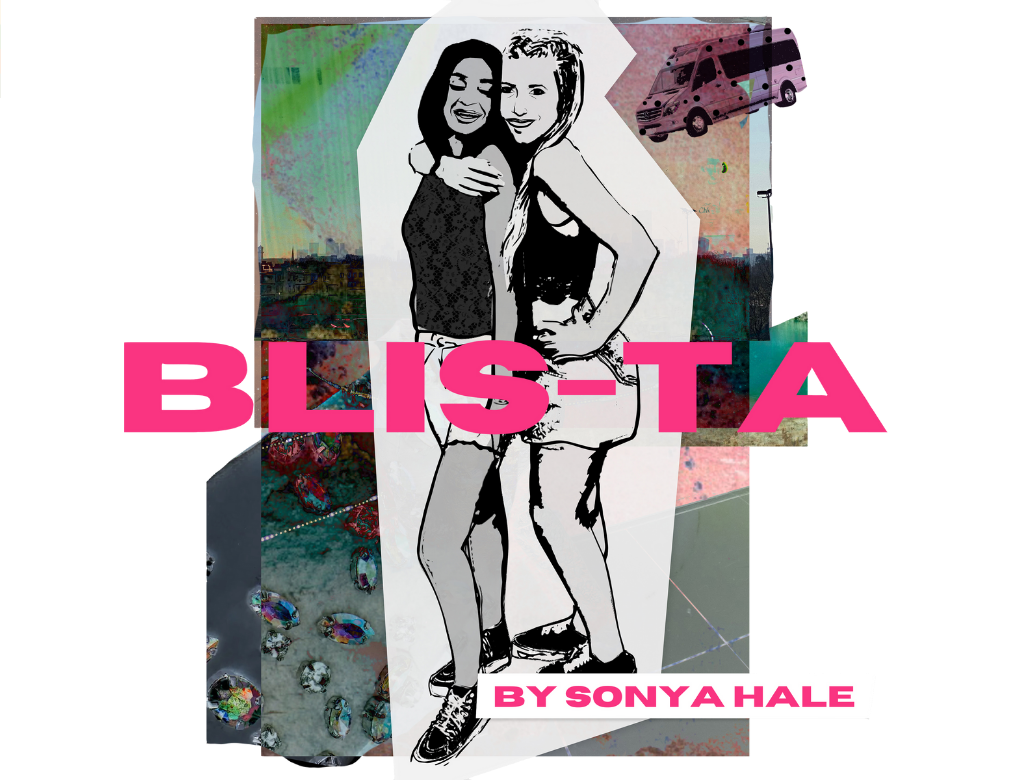
We are thrilled and so grateful that Blis-ta has been chosen for this award, which recognises outstanding audio drama writing, establised by the Writers’ Guild of Great Britain and Society of Authors in memory of acclaimed radio writer Peter Tinniswood.
Róisín McBrinn, Blis-ta Director and Joint Artistic Director of Clean Break - "We are so proud that Sonya’s writing has been acknowledged by the Tinniswood Award. As Lucy Kirkwood says in her introduction to Blis-ta, Sonya died a playwright and this is a huge celebration of that fact.
As well as the Tinniswood, we’d like to thank Ambreen Razia and Ria Zmitrowicz for their brilliant performances, Mimi Findlay for producing and Helen Skiera for her magnificent sound design. This audio drama would not have been made were it not for the kind support of Bertie Carvell, Jeremy Mortimer, Jessica Dromgoole and the National Theatre Sound Department who moved mountains to help make this happen at the height of lockdown.
We miss Sonya hugely at Clean Break."
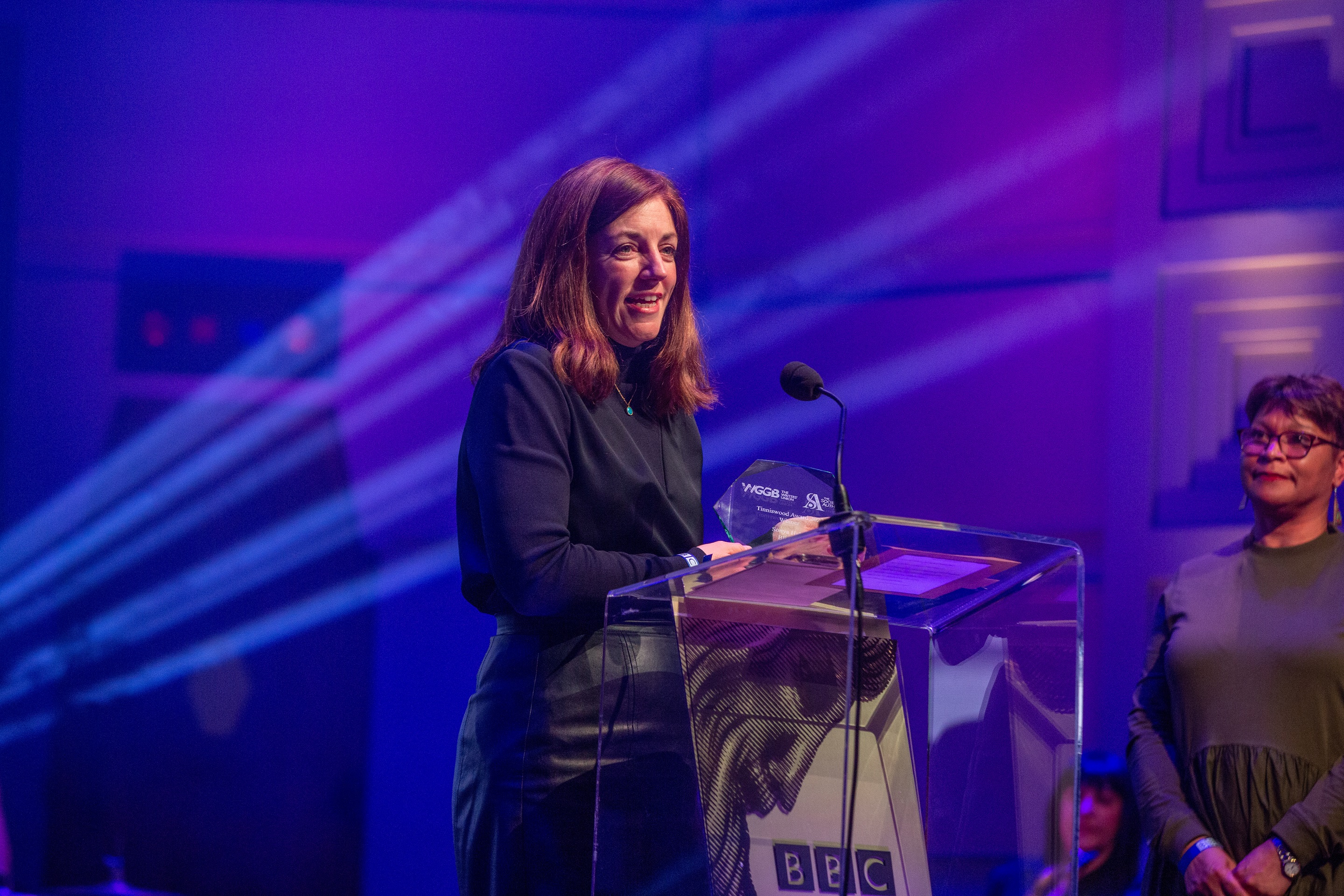
Róisín McBrinn accepting the Tinniswood Award 2022 for Blis-ta. Image credit: BBC / Tricia Yourkevich
Amy Hale (Sonya's sister) - "I'm incredibly proud of her and it is so heartwarming to see she is getting recognition for her talent, though of course it is bittersweet not to be able to share it with her."
Seeing Sonya Hale's outstanding play about young women, homelessness, sex work and survival be uplifted and commended in this way by the BBC galvanises us to keep producing bold, unapologetic work and shedding light on stories which are often left unheard.
Listen to Sonya Hale's bold, visceral and award winning play here:
You can also listen to Lucy Kirkwood's introduction to Blis-ta here:
With thanks to The Bromley Trust, Jerwood Arts, McGrath Charitable Trust and The Orseis Trust for their support of Blis-ta.
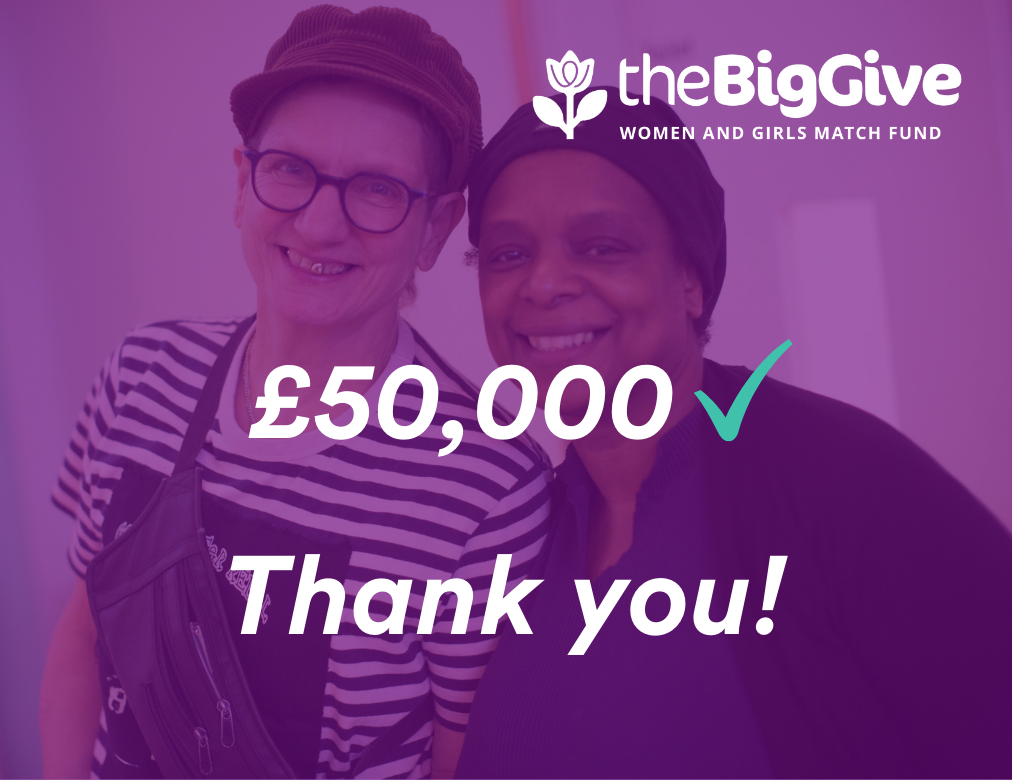
THANK YOU to everyone who donated, shared and supported our Women and Girls Match Fund campaign.
We have raised an incredible £55,157 (£56,733 with Gift Aid) towards the development of HOPE, a new digital project co-created by Clean Break Members and leading women artists.
With an awareness that we all need hope, perhaps now more than ever, we asked our community to submit their response to ‘what does hope means to you'. We are pleased to share with you two beautiful poems from Clean Break Members, Ann and Oriana and our 'wall of hope', created from responses we recieved on social media.
We are grateful to be able to share these poems and messages with you, and hope they bring you the same joy and empowerment they have brought to us.
.png)
.png)
As we develop this project, ‘hope’ and its unifying power, will continue to be part of the conversation at Clean Break. There is still time to share your words of hope, you can email us at development@cleanbreak.org.uk.
Thank you once again for following this journey, for sharing your hopes and for giving hope to women who face deep disadvantage.
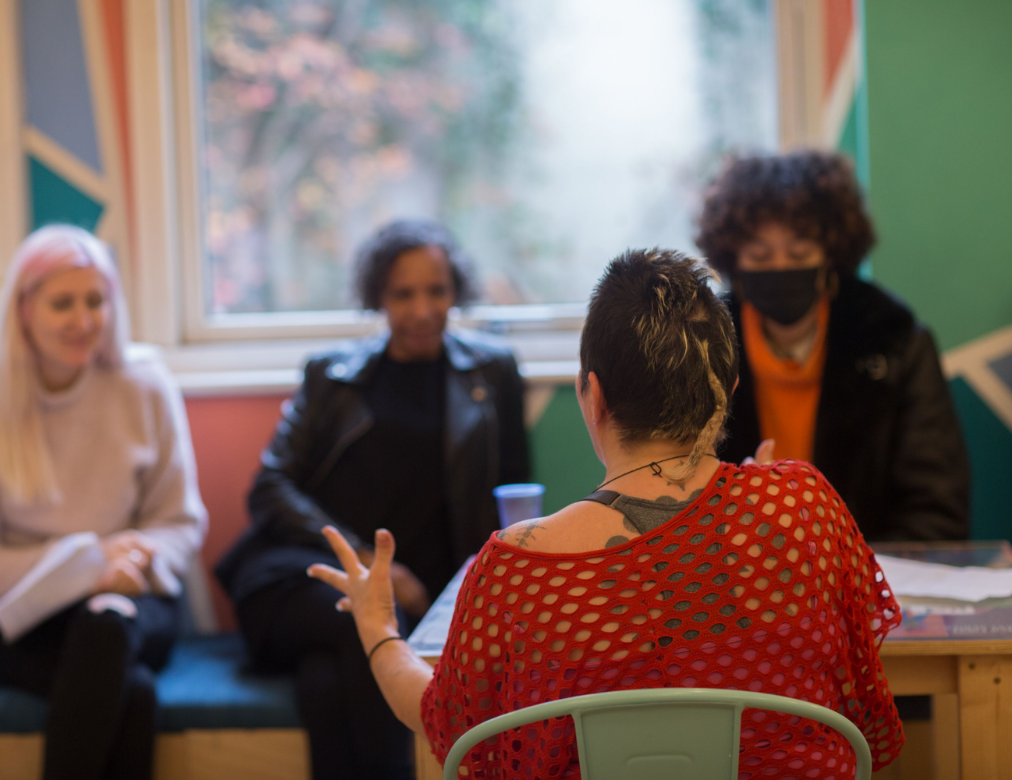
In co-creation there is equality, connection and fairness, core principles of Clean Break’s practice. All participants mutually benefit from the process, all are seen, heard and valued. Creating work with, not for, the women we support, whilst ensuring that lived experience guides all areas of our work, has always been central to our mission.
As we look back on the last two years, we must reflect on how the pandemic has compounded the disadvantage that women who are caught up in the criminal justice system, or those at risk of entering it, experience. Beyond the impact it has had on exacerbating the issues our Members face - poverty, homelessness, racism, abuse, addiction, mental and physical ill-health – we must also consider whose stories have become lost in the noise.
As we return to producing work post-pandemic, our priority is to embed co-creation across all areas of the organisation and ensure that the voices and experiences of our Members are at the heart of all our work. With our platform, we are powerfully placed to amplify these voices and experiences, breaking the bias and shifting attitudes around the criminalisation of women.
Anna Herrmann, Joint Artistic Director of Clean Break, comments:
“At Clean Break co-creation is the practice of bringing together women artists and Clean Break Members to collaborate, recognising that every individual in the space has a unique value to contribute to the collective endeavour.
The particular nature of our co-creation process aims to centre Members lived experience, and ensure they have agency and power over the telling of their stories and the shape of the work, which can more traditionally reside in the hands of the artists.
For the artist involved it is necessary to understand the power and privilege that is at play and actively decentre themselves. For all involved it is a process of generosity and reciprocity. It is an expression of both activism and art, interconnected and interdependent.”
HOPE will not only showcase our Members’ talent, creativity and skills, but it will be one of the first pieces of work created under a new framework which centres co-creation.
"The process felt equal and collaborative. I loved the conversations we were having and though I missed socialising in person it was great to re-connect online." - Member and HOPE Research & Development Participant.
Members will collaborate with leading women artists to create the pieces using ‘hope’ as the catalyst together, with Members’ voices at the centre of the whole artistic process. Members will learn new skills from industry professions in digital theatre, film and production skills, and leading artists will benefit from the collaborative, creative exchange. These pieces will be filmed and edited together into a film which will be streamed online over a two-week period later this year, engaging audiences in the search for a more radical and active expression of hope in troubling times.
This project will create a legacy at Clean Break, as we can use the learning and successes from HOPE to plan and build other co-created projects.
Our Women and Girls Match fund campaign is over, but you can still donate to Clean Break here.
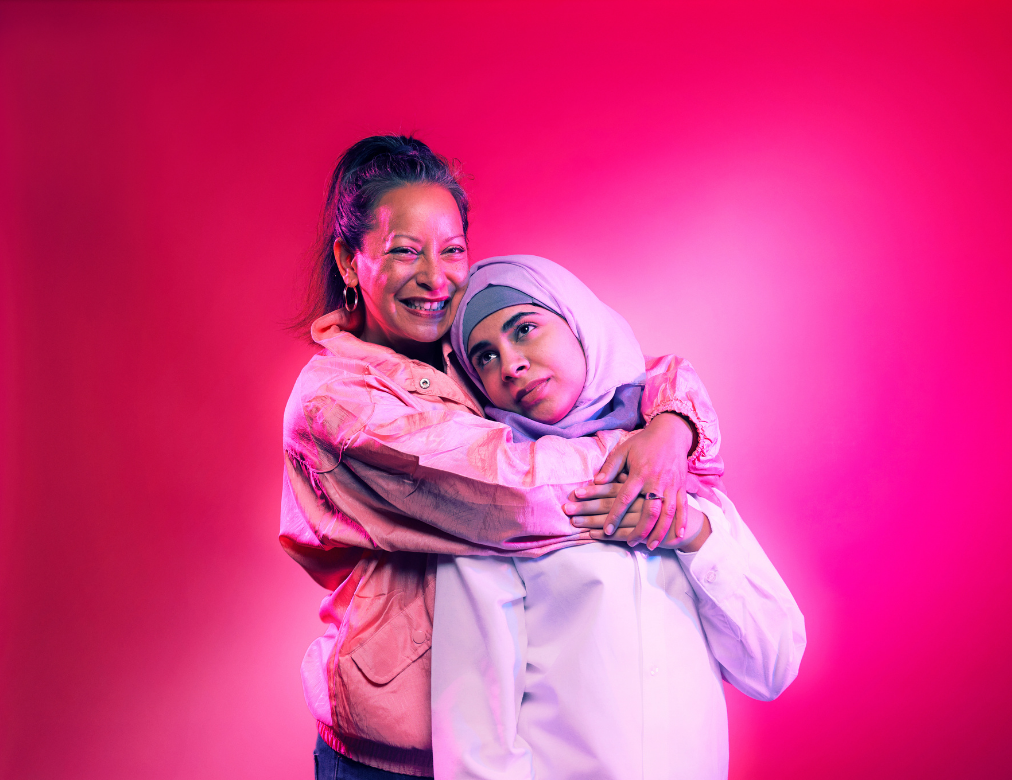
We are very excited to announce our summer 2022 show, a Clean Break and Bush Theatre co-production, Favour by Ambreen Razia, directed by Róisín McBrinn and Sophie Dillon Moniram.
Favour is a touching and hopeful family drama that tackles duty, addiction and the battle of putting yourself back together. Writer of Diary of a Hounslow Girl and Mind The Gap, Ambreen Razia’s remarkable new play tells a strikingly frank story of a working-class Muslim family in a way you’ve never seen before on stage.
The play follows Leila, a teenage girl who is happy living at home with Noor, her loving but traditional grandmother. When Aleena, her fiercely independent mother, returns home from prison determined to deliver a new world of fun and excitement, their calm lives are upended in a blur of nail varnish and sweet treats. Family secrets come tumbling into the light, and Leila finds deciding on her future more difficult than she first thought.
We are honoured that Favour will be part of the Bush Theatre's 50th Anniversary Season, running from Friday 24 June until Saturday 6 August 2022.
Anna Herrmann, Joint Artistic Director and Joint Chief Executive of Clean Break: “We are absolutely thrilled to be co-producing this beautiful play by Ambreen with The Bush and to be part of their celebratory 50th anniversary season, with such a stellar creative team and directed by a brilliant duo in Róisín and Sophie. We haven’t been on a London stage since 2019 and couldn’t be more delighted that our return is to this remarkable venue, which combines extraordinary theatre, with strong community values. The Bush feels like the perfect home both for us, and for this special story of struggle and hope.”
The play is being co-directed by two outstanding women directors; Clean Break's Joint Artistic Director, Róisín McBrinn whose recent credits include our production Typical Girls by Morgan Lloyd Malcolm, and is currently directing Kate Mosse's The Taxidermist's Daughter at Chichester Festival Theatre. Co-directing with Róisín is Sophie Dillon Moniram, a 2018 Old Vic 12 alumna who's credits include POT and Diary of a Hounslow Girl, both also written by Ambreen Razia.
Sophie Dillon Moniram, Co-Director The Favour: “I am hugely excited to be co-directing The Favour with Róisín McBrinn, a brave and tender piece from Ambreen Razia about starting again, co-produced by two extraordinary forces in The Bush and Clean Break who are passionately committed to serving their communities.”
Tickets for Favour are now on sale, through the Bush Theatre's website.
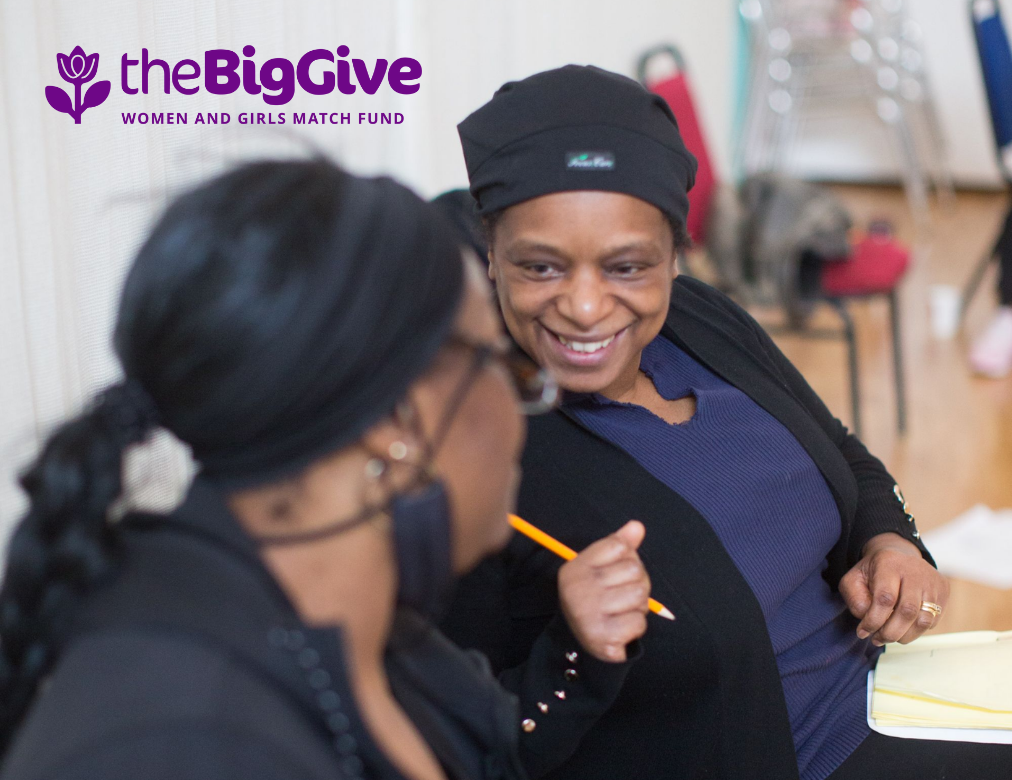
To celebrate International Women’s Day 2022, we are proud to be taking part in the Big Give Women and Girls Match Fund.
We are raising vital funds to support the development of Hope, a new film co-created by our Members (women with lived experience of the criminal justice system or at risk of entering it) and leading women artists, exploring hope as a radical and political act.
Donate today to double your donation
The issues our Members’ face are often interlinked– poverty, homelessness, survivors of abuse, addiction, mental and physical ill-health, criminalisation and incarceration - with trauma at the core. Unsurprisingly, two years of multiple lockdowns and continuing uncertainty have exacerbated their needs. As we reflect on this huge global event, we must question whose stories have become lost and what impact this might have on women who already face the sharpest end of disadvantage.
To create change, we must empower women to find their voices and share their hopes, whilst using our platform to shed light on these stories of lived experience.
Hope was born out of a workshop in 2019, between women artists and Members, as they explored what hope means in their lives. Yet, as we begin to imagine life beyond the pandemic, we understand that the concept of ‘hope’ has a renewed sense of importance for audiences globally and for the women we work with.
With Hope we are centring Member’s voices, as they co-create pieces with artists, which will then be filmed and edited into a 45-to-60-minute film and streamed online to audiences over a two-week period later in 2022.
Hope is most powerful when we come together, so we want to explore how hope can be used as a force for good to support collective activism. With this year’s International Women’s Day theme of ‘break the bias’, this is a powerful moment to invite you to add your voice to the conversation.
.png)
We are asking our community to share what ‘hope’ means to you. Submit your responses on Instagram, Twitter, Facebook or LinkedIn and follow #HopeIsPower throughout the week to watch the movement grow.
As you share your hopes, please consider giving hope to women with experience of the criminal justice system by supporting our campaign. Every £1 donated through the Women and Girls Match Fund from 8 March to 15 March will be doubled. That means one donation, twice the impact.
With many thanks to the Big Give Trust and DCMS’ Tampon Tax Fund.
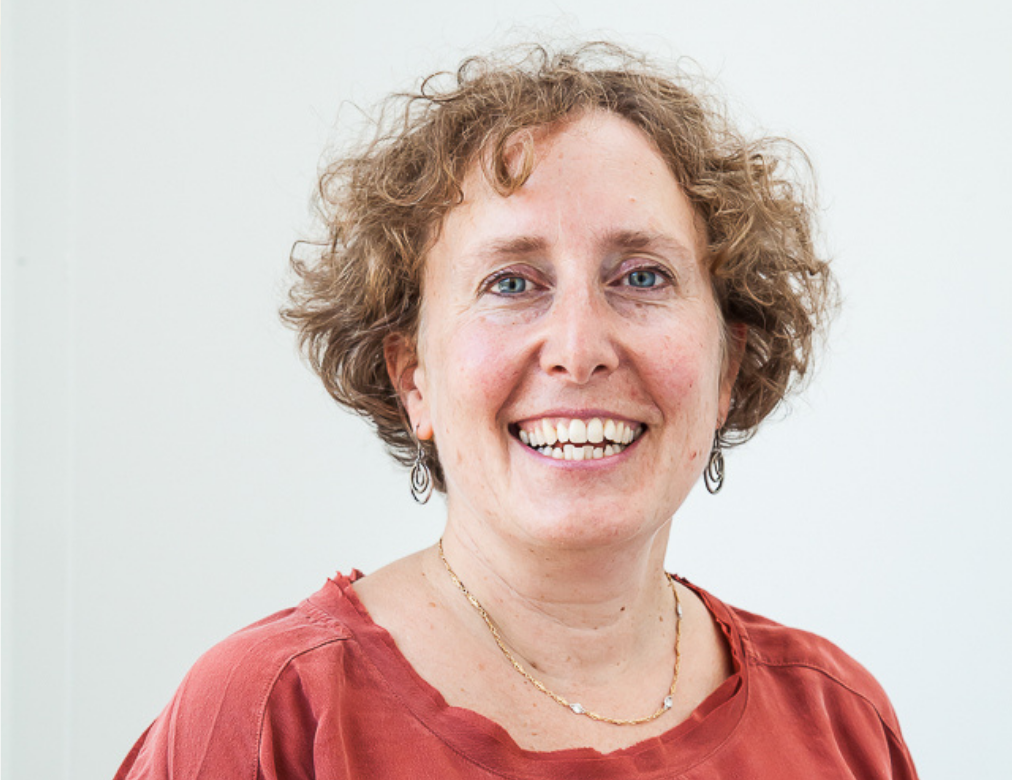
Anna talks about the transformative power of creativity, the damaging impact of the criminal justice system on women and the passion and commitment of those still fighting for change.
I started my journey in justice-based theatre working with young people who were experiencing homelessness and subsequently young people in schools and youth centres challenging racism. I facilitated theatre training projects and devised productions to build skills and confidence, and to bring awareness to audiences about young people’s experiences. I have always had a strong belief in the need for, and value of, women-only spaces, so when the opportunity came up twenty years ago to work with Clean Break, it was a perfect combination of my passion and interests.
At first, I became Head of Education for our theatre education programme for women with experience of the criminal justice system or who are at risk of entering it. This involved leading the growth and expansion of this programme, which at its peak, offered over thirty courses every year, providing qualifications and support in a safe, women only space, from our north London studios. A key achievement was developing strong partnerships with universities where women were offered bursaries and places on undergraduate courses following their time at Clean Break, relationships which continue in the present day, providing a much-needed pathway to new skills. The role also involved bringing Clean Break plays into prisons, enabling women to engage with our work and running theatre-based workshops.
In 2018 I moved into the role of Joint Artistic Director and Joint Chief Executive as we moved into a new phase, with a commitment to ensure women with lived experience are at the heart of the company and at the centre of the theatre we create, shifting the power of who makes and tells our stories.
Over the last twenty years, I have seen how damaging an environment the prison system is for women, and how impossible it is to create a rehabilitative culture within it. I can’t see where else we have such a deeply discriminatory system at the heart of our society, which we continue to invest heavily in. I think prison shows a failure in our imagination. There is something truly incongruous about holding people in such a punitive space, while wanting people to learn, grow and make change for themselves and their families.
I’ve also seen how much the criminal justice system is an expression of patriarchy, which discriminates against women, as it’s a system designed by men for men. There are 12 women’s prisons in England (and none in Wales), with women being held on average 60 miles from home, which impacts adversely on visits from family and severs ties to community. This adds to the already devastating impact prison has on women’s mental health, with over 7 in 10 women in prison experiencing mental ill health and record numbers of incidents of self-harm reported recently.
More positively though, there is a huge amount of passion, commitment and determination in those who fight for prison reform or abolition. I have met amazing people, particularly women who campaign in this field, and that includes here at Clean Break; colleagues, artists, Trustees and Members. There is hope in these amazing people and organisations who don’t take the pressure off, and this energises me.
And theatre continues to be the transformative pillar of the work I do. Making theatre offers imaginative escape, healing and community. It helps to process difficult emotions, feel a sense of pride, feel seen, valued and recognised.
Through working with Clean Break, I have seen first-hand the impact writing and performing has on women with experience of the criminal justice system, or who are at risk of entering it. Writing allows people to tell not just their own story, but to create a world which they have within them. The women we work with often talk about finding or honing their voice through our programmes.
For women who are marginalised and have experience of stigma and negative labels, participating in a creative process can be very freeing: it’s your imagination and its valid. At Clean Break women can be free to express themselves, without labels or explanations. We all contribute to making it a respectful space to embrace a new identity as an artist, writer or performer. Our plays aren’t usually rooted in autobiography, although we are beginning this work now, ensuring we hold women's wellbeing safely within the process. Even without it being their own story, performing demands a huge amount of courage and of self-belief, to stand in front of an audience. Performing builds confidence, skills and improves health and wellbeing. If prisons took their responsibilities of rehabilitation seriously, they would invest in and nurture creativity within the walls and beyond prisons, through the gates. Creativity, arts and culture are a way for people to reconnect with their communities and contribute to society in different ways. It also allows people to not just be seen through the lens of the criminal justice system. Over the decades I’ve seen hundreds of women who haven't believed in their potential, because of damaging layers of oppression. But through creativity, with time and support from Clean Break staff and peers, they start to see themselves differently. It’s an incredible journey to witness women going on, and very humbling. A big part of our approach at Clean Break is rooted in the knowledge that people’s journeys are not straight forward. Change happens step by step, and there are so many ongoing challenges – trauma, recovery, poverty, discrimination. There's a complexity of women’s lives that we respond to, the door remains open.
The life skills women gain through our programmes support women moving on to careers not just in the arts, but in a range of other fields, for example, substance misuse services, activating their lived experience. Many people have taken that journey though Clean Break. The role of those with lived experience in changing systems for the better is now strongly recognised, a shift of discourse from the margins to the centre, which has taken place – which I hope will lead us to meaningful change.
Since I began working with Clean Break 20 years ago, some of the battles are the same. Access to prisons remain a challenge for us, which keeps arts and culture unavailable to people inside. Some prison Governors champion arts, but it is very dependent on personnel – and not considered an essential part of provision. The current funding model, the ‘Dynamic Purchasing Framework’, does not feel very dynamic or appropriate for small arts organisations – it is a deeply transactional process which has removed the ethos of working in partnership with prisons. Artists are often expected to carry keys and take on the role of prison officer (this is something we won’t do at Clean Break). Having said that, at a policy level there is an increased recognition of the value of arts in criminal justice settings, and other places where people are denied access to the arts. Recently we have seen much more buy in from some Government bodies, and the Arts Council which supports the National Criminal Justice Arts Alliance through multi-year funding.
The biggest upheaval for our work in prisons though has been as a result of the pandemic, which overnight removed access to prisons and those inside them for arts organisations. We have risen to the challenge of finding new ways to connect with people in prison, but the regularity of arts organisations having access to prisons has been broken, so we need to rebuild this.
There is positive change, however, with the women’s centre model offering a viable alternative to prisons. With women’s centres, women remain in the community and are provided with trauma informed support, by women for women. The centres understand women’s complex needs, and work without judgement to support them. This didn’t exist on a national scale before the Corston Report. We are now galvanising the public and urging the Government to provide sustainable support for women’s centres, so we are not reliant on prisons and find different ways of transforming lives.
20 years feels like a long time to have stayed in one place, but the day-to-day rewards and challenges are immense – and the drive for change, justice and equality only strengthens. It has been a huge privilege to be part of an inspiring community of women, and to contribute to change. It has given my life a meaning and purpose which I never imagined but which I am hugely grateful for.
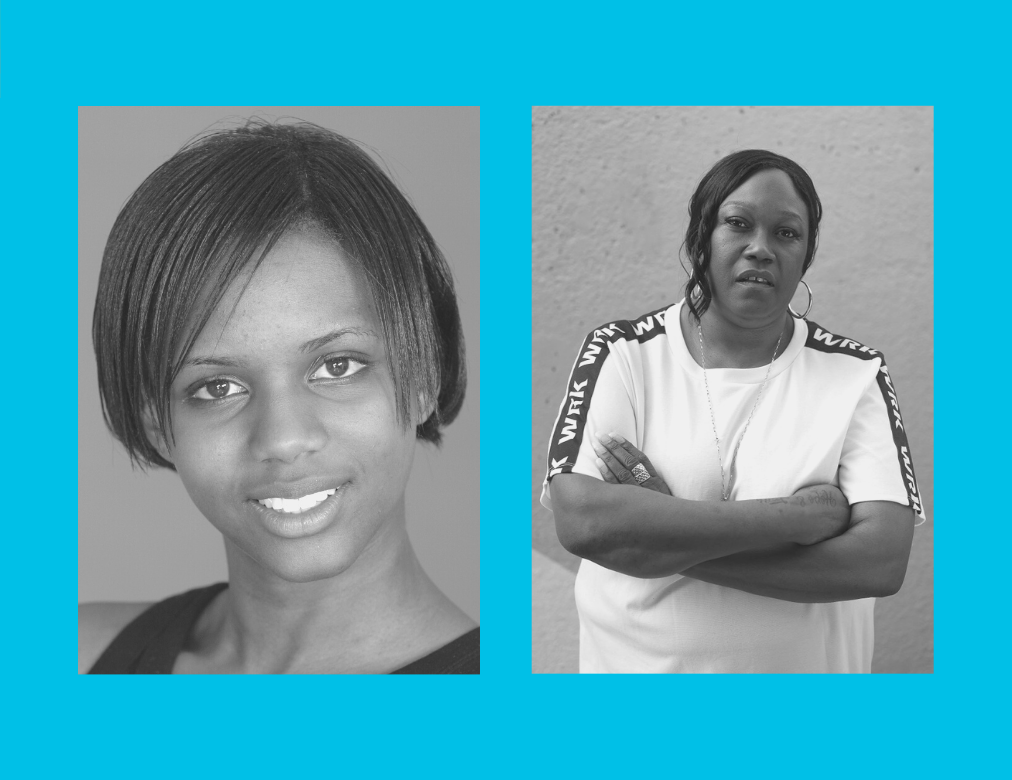
Written by Eno Mfon (Check the Label, Bristol Old Vic), Directed by Eva Sampson (Unpresedented, BBC Arts) with Assistant Director Esme Allman (CLUB, Bedlam Theatre) and Musical Direction from Eddy Queens (Typical Girls, Clean Break & Sheffield Theatres). The cast includes Nicole Hall (Through This Mist, Clean Break) and Jennifer Joseph (Maryland, Royal Court), alongside a community chorus of Clean Break Members including Anita Brown, Yvonne Jeffrey, Sally Millar, Eden Rose and Oriana White.
“5pm. It's time for Sandra to stop working, close her laptop, switch off her phone and her worry, but it’s not that easy. When Sandra starts to work from home, the voices of the women she's supporting creep in too... in her bedroom, in the walls and even her dreams.”
More Than We Can Bear was written by Eno Mfon following research interviews with key workers at several women’s centres during the pandemic.
The play is part of the Almeida Theatre's Keyworkers Cycle, a cycle of nine new plays celebrating the stories of those who keep our daily lives running, including teachers, doctors, cleaners, support workers and delivery drivers.
More Than We Can Bear will be at the Almeida Theatre from 11 - 12 March 2022. The Keyworkers Cycle will be running from 9 - 12 March. All performances of More Than We Can Bear will be BSL interpreted, performances on 12 March will also be captioned and audio described.
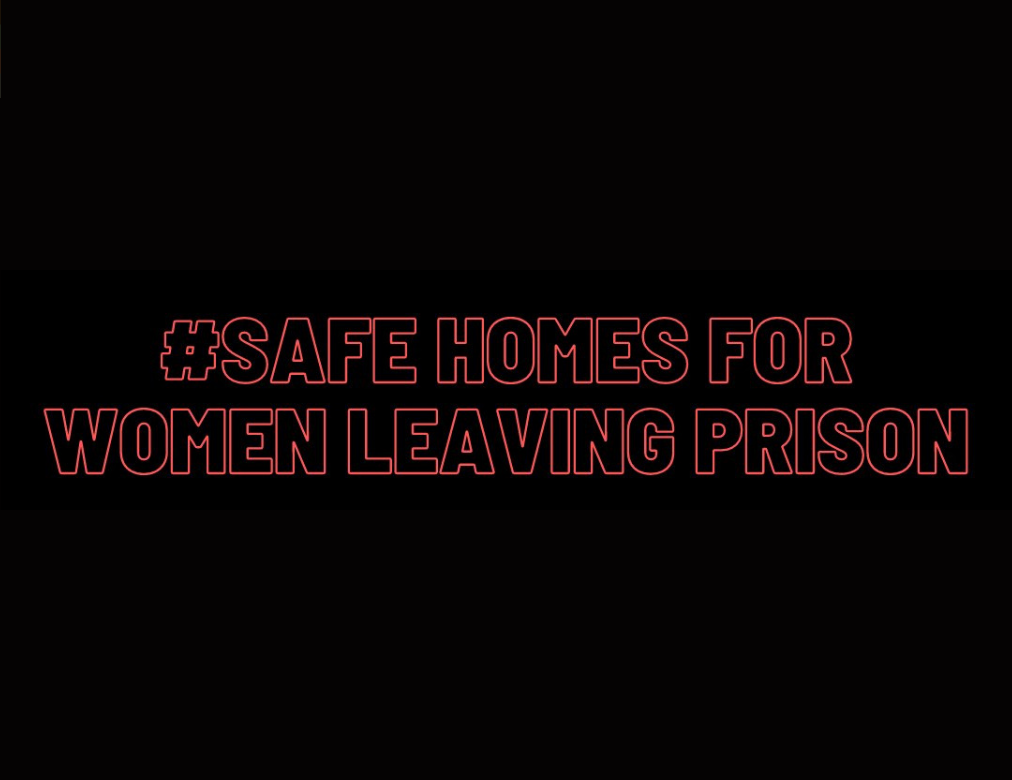
This campaign comes after a recent report from the Independent Monitoring Board, which found that 77% of women from the UK's largest women's prison faced homeslessness on release in July 2021. We're calling on the Government to take urgent action.
Clean Break are proud to have signed a delclaration alondside 30 other specialist organisations.
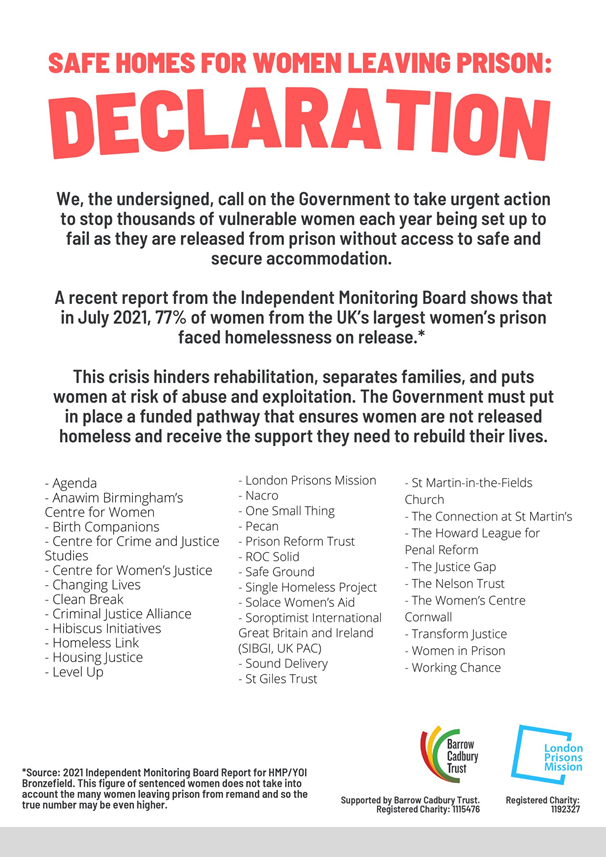
Published by London Prisons Mission.
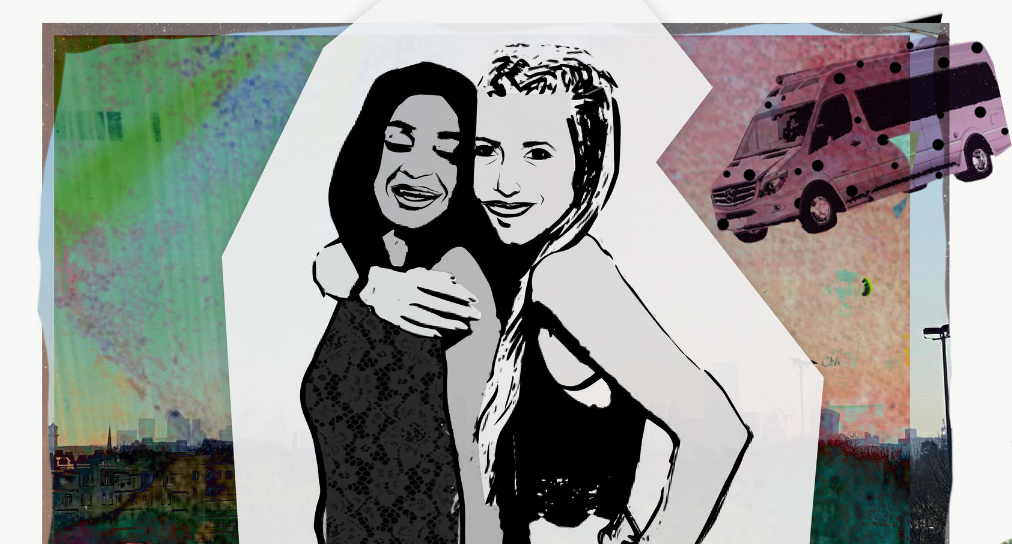
We would like to say a big thank you to the BBC Audio Drama Awards for including Blis-ta in their shortlist for Best Podcast or Online Audio Drama.
Blis-ta is a visceral, bold and startling audio drama about hidden homelessness and the lengths women go to for survival. A wild celebration of resilience, it will spin you through a mesh of joy, chaos and beauty. The play was written by the late Sonya Hale, who was a Clean Break Member and an incredible writer, and produced by Mimi Findlay.
'We are so delighted to have been shortlisted. I have been in touch with Sonya's family and they share our pride to be included with such great nominees. We made Blis-ta in the height of lockdown and when Sonya was very near the end of her life. It feels incredibly hopeful that it has been so well received and that we can continue to celebrate Sonya.'
- Róisín McBrinn, Director of Blis-ta and Clean Break's Joint Artistic Director.
You can listen to Blis-ta for free below, or on Apple Podcasts and Spotify.
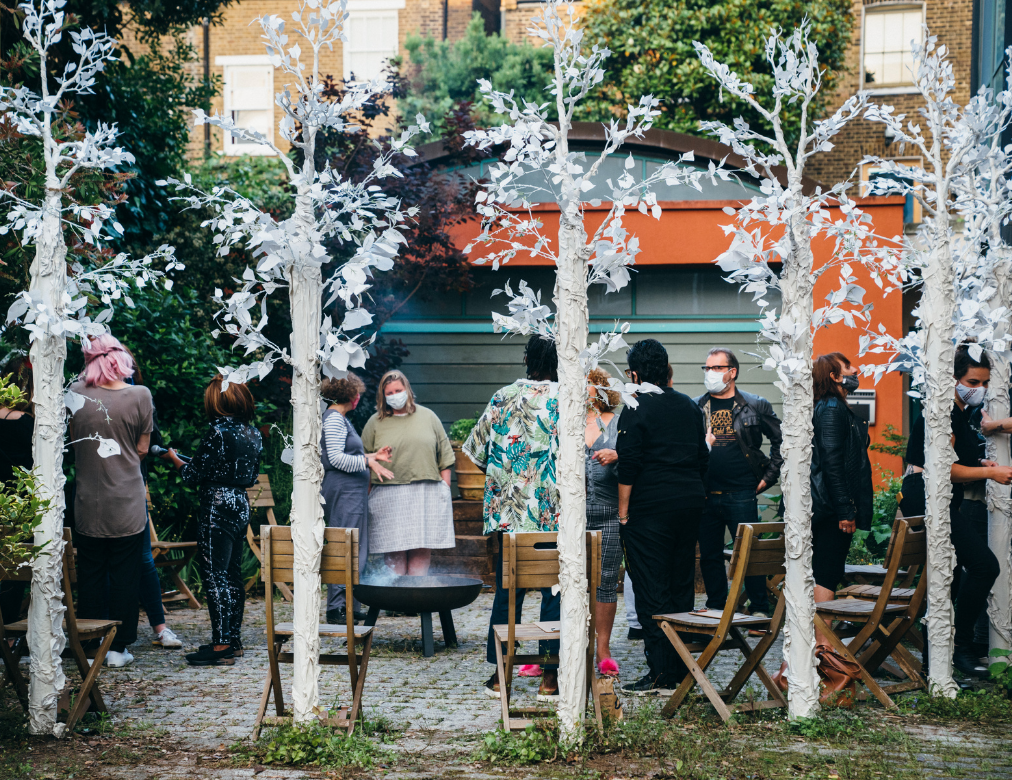
It has been an eventful year here at Clean Break. Whilst the challenge of living through the pandemic is still very much with us, and 2021 has not been the period of recovery we had hoped for, we are incredibly proud of our achievements this year, and the continued resilience and perseverance of our team. Our commitment to care and safer spaces has sharpened this year, not just in how we work with Members and artists, but how we move forward as an organisation with the values of compassion and collaboration leading our decisions and actions at every turn.
2021 has seen a fresh demand for our programme as we have welcomed new Clean Break Members both online and onsite into our building, enabling artistic growth alongside providing holistic support. We have pursued our commitment to employing artists from within our Membership as actors, theatre makers and panellists, and were delighted this year to celebrate an increasing number of Members breaking into the wider industry, proudly making their mark in films and on national stages.
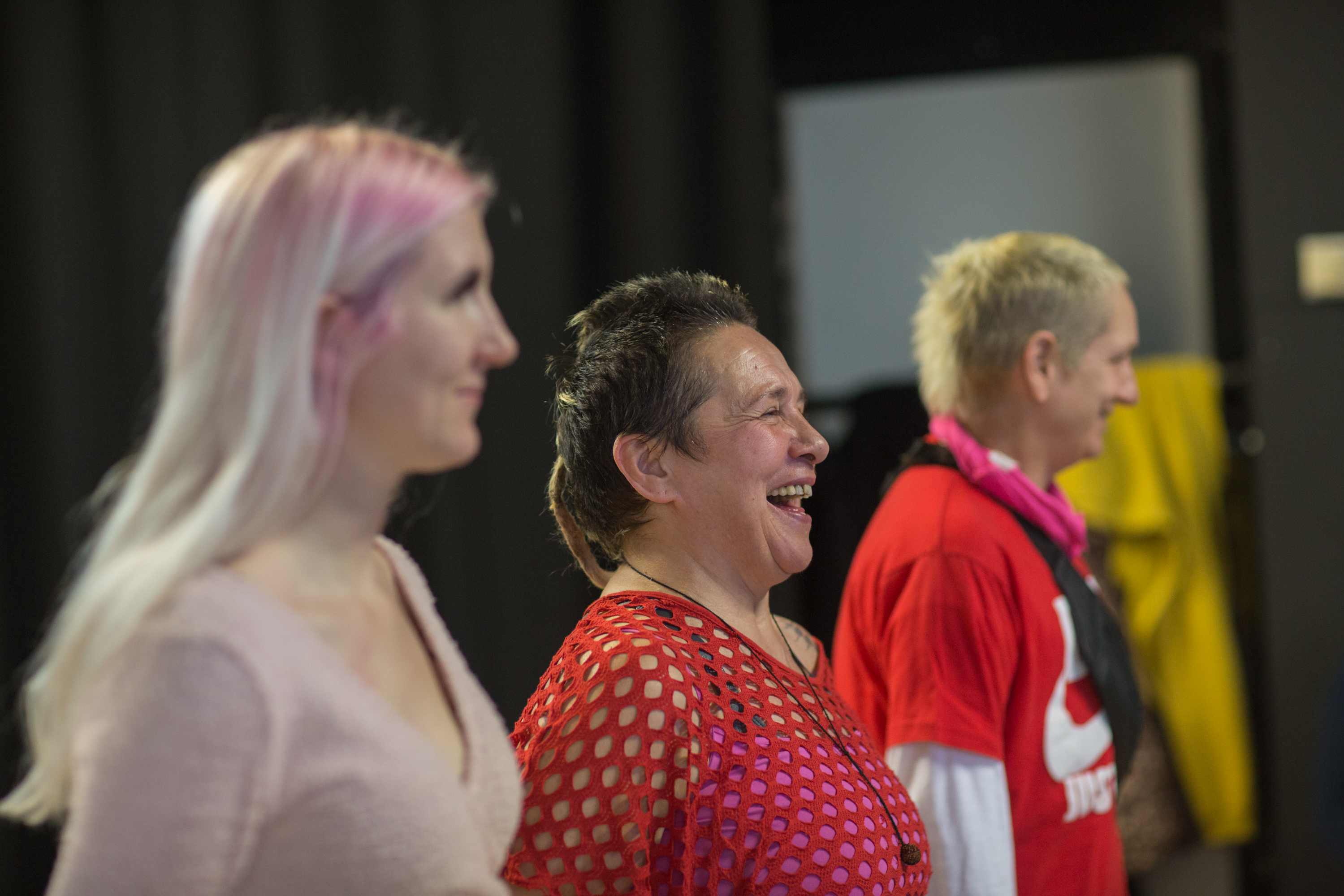
Photo credit: Tracey Anderson
2021 was also about making space for joy. We celebrated a return to live performance with our outdoor co-created works Through This Mist, performed in the summer months in the Clean Break garden to our friends and local community. The culmination of our heritage project saw us showcase our rich 40 year history at Swiss Cottage Gallery, with our beautifully curated exhibition and programme of live and digital events. And we were thrilled to enter the autumn period with our electric production of Typical Girls at the Crucible in Sheffield. A punk-fuelled play by Morgan Lloyd Malcolm, Typical Girls was created with the unique alchemy of leading women artists and our Member artists. Not forgetting the genius of The Slits!
While we cherished being back together in person, we continued our digital adventures and enjoyed reaching audiences in new ways. We released Sonya Hale’s visceral play Blis-ta as an audio drama; produced our Voices from Prison e-book; and released Chloë Moss’s Sweatbox as a short film. Typical Girls also became part of our digital programme, during the run we held a live stream performance which reached people across the UK. Bringing live performances into prisons has still not been possible for us since the start of the pandemic, but we were able to share Typical Girls in prison digitally, thanks to WayOut TV. Although this in no way replicates the vital connection of working directly inside prisons, it felt positive to have shared the joy and rebellion of Typical Girls with women inside.

Typical Girls at Sheffield Theatres // Photo credit: Helen Murray
This year we embarked on a journey with anti-racism consultants darvaja, working towards developing anti-racist practices across Clean Break. We have interrogated our practice, acknowledging where racism shows up in our structures and co-creating across the organisation - envisioning what anti-racism looks like at Clean Break. We would like to thank darvaja for their guidance, supporting us in our commitment to change, for their tough questions and generosity. We would also like to thank the Clean Break team, trustees, artists and Members for bringing themselves to this work fully, and for working through challenges with heart.
Clean Break is a collective endeavour, we would like to thank everyone who has been part of Clean Break, engaged with our work or stepped through our doors (in person or virtually) over the past year.
This includes our wonderful partners, who have collaborated with us to realise so many of the year’s achievements.
Our Patrons for championing the company wherever they are. We were deeply sad to have lost Barbara Hosking this year, who was a trailblazer in every way and our heartfelt sympathies go to her partner Margaret Hyde and family and friends.
Our community of supporters, who have continued to ensure our future. Thank you to Arts Council England & DCMS for the transformative support of the Culture Recovery Fund; and to all the Trusts, Foundations, statutory partners, corporate partners & individual donors who have supported us and made our work possible.
And finally, a heartfelt special thank you to all the individuals who make up our team, trustees, artists, volunteers, and our Members who commit themselves to a shared vision of a world where women reach their full potential, free from criminalisation. The pursuit of which continues to propel us with energy and determination.
Looking forward, we’re excited for what 2022 has in store! Watch this space for a new co-production, digital projects, work in prisons, and more opportunities for collaboration.
Wishing everyone some joy, rest and rejuvenation as the year ends.
Anna, Erin and Róisín and the Clean Break team
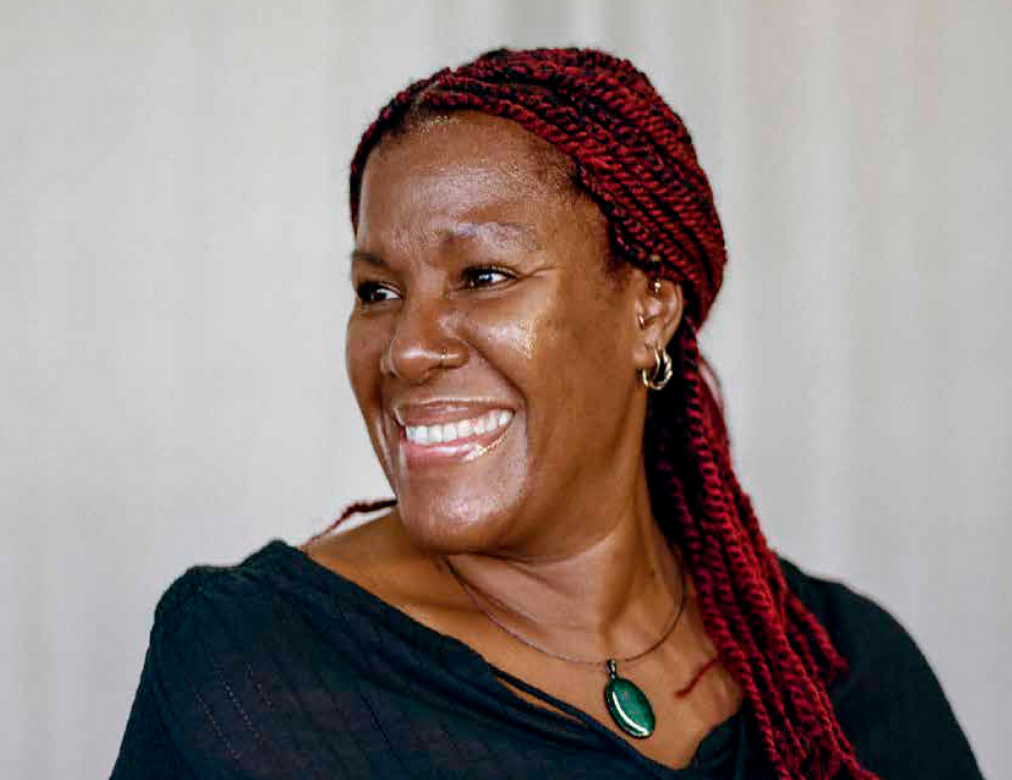
On Friday 3 December the Clean Break team were lucky to attend the annual Alfred Fagon Awards at the National Theatre, celebrating Black excellence in the British theatre industry.
As this was the 25th anniversary of the awards, 25 Black theatre practitioners who don't often take centre stage were recognised for their 'talent, dedication, drive and collaborative spirit.' Samantha McNeil, Clean Break’s Volunteer Manager was nominated by our Joint Artistic Director, Anna Herrmann for bringing so much dedication and passion to her work at Clean Break for over 20 years. To our delight, Samantha was selected by the board.
“Samantha established and now manages a vibrant programme of volunteering both for our Members and for women in the community. This has grown under her tenure to a rich and diverse programme of volunteering across the year and in all areas of company activity.
Each volunteer is welcomed into Clean Break and supported by Sammy to contribute and to benefit from their time here. She builds rapport and celebrates when former volunteers succeed in finding paid work in the industry, which many do” - Anna Herrmann, Joint Artistic Director of Clean Break.
The Alfred Fagon Award ceremony was a wonderful celebration, and the Clean Break team were excited to attend in the iconic Lyttelton Theatre. To acknowledge the achievements of the 25 Black Champions of Theatre, the audience gave a huge round of applause – of course we cheered especially loudly for Samantha!
During the ceremony, it was wonderful to see three extremely talented Black playwrights be awarded for their work. Diana Nneka Atuona was the recipient of the Roland Rees Bursary, and Chakira Alin was the inaugural winner of the Mustapha Matura Award and Mentoring Programme. The 2021 Alfred Fagon Award was won by the incredible Mojisola Adebayo with her play Family Tree, which there was a reading of after the ceremony.
“It was a very magical day at the National Theatre, one that I will not forget for a lifetime. To be honoured in such a way is a privilege, I am so deeply moved and grateful for the recognition for my services to volunteering, theatre and the arts, and especially to my fellow Black Champions of Theatre 2021. To be amongst amazing individuals, meeting some of you on the day was so moving, empowering and delightful, and not forgetting the love and respect shared all round, it truly was jubilant and joyful day.
Thank you to the organisers for putting together a memorable event.” - Samantha McNeil
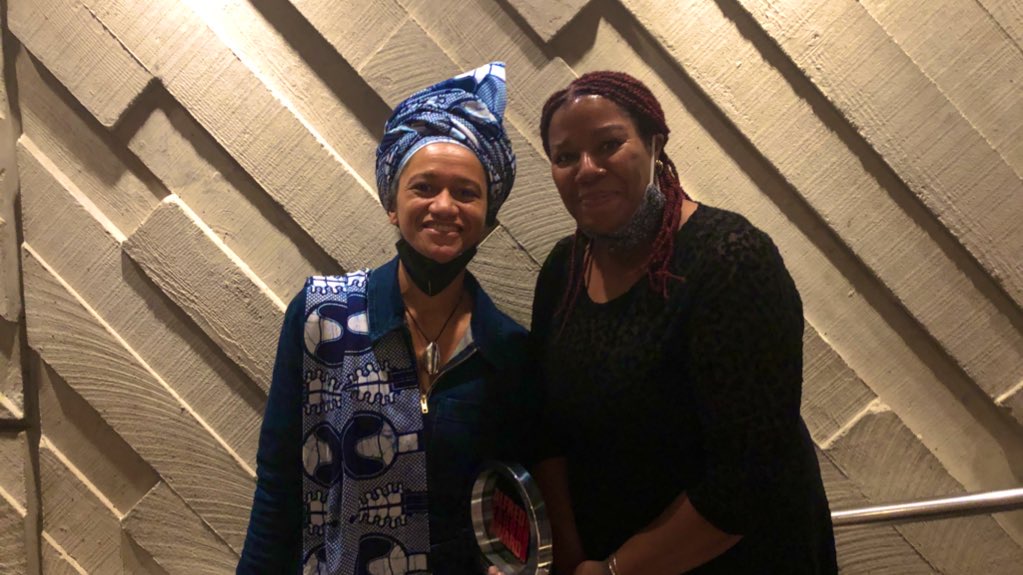
Left to right: Mojisola Adebayo and Samantha McNeil at the Alfred Fagon Awards.
Recognising Samantha’s work in developing our volunteer programme at Clean Break is significant. Because of Samantha, volunteering at Clean Break is a very special experience. We see the beauty and power in volunteering, and how mutually beneficial the relationships we have with our volunteers are.
We are so lucky to have incredible volunteers offering their time and skills across the organisation, from running workshops with our Members, to gardening and cooking tasty, nutritious lunches.
None of this would be possible without Samantha, who over time has built strong and meaningful links with our local communities, leading to truly enriching volunteering experiences.
“1998 was the turning point for me, I finally found my volunteering home at Clean Break. Looking back on my first day I was extremely nervous but equally excited to be assisting with the student support team in an admin role.
Over 20 years later, I still and always will have a huge commitment and passion for volunteering, I simply just love volunteering!” - Samantha McNeil
Photo credit for main image: Myah Jeffers/Alfred Fagon Award.
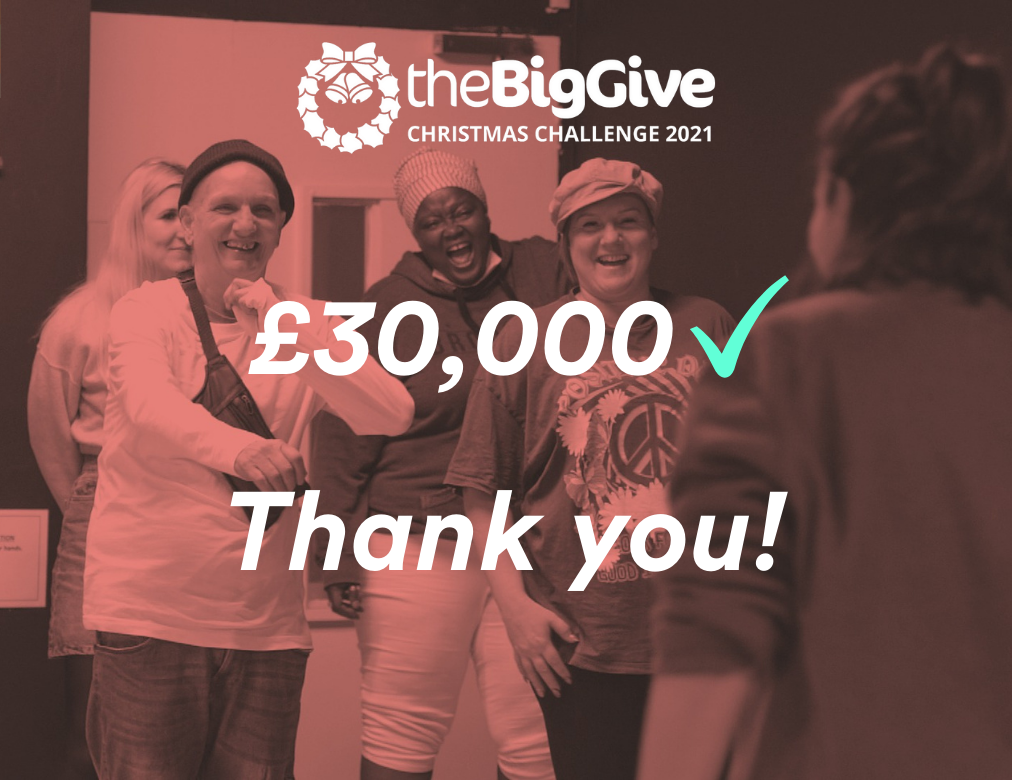
Clean Break’s Big Give Christmas Challenge 2021 has been a great success, all thanks to the generosity of our amazing family of supporters – old and new.
In just one week, we raised an incredible £30,506 to help us to reach and support women with lived experience of the criminal justice system, or those at risk of entering it, on their journey from surviving to thriving.
Throughout the campaign, we introduced you to the women at the heart of Clean Break, our Members. Before we say goodbye to the Big Give Christmas Challenge 2021, we are pleased to share a final word of thanks from Donna, Ellen, Inka, Jasmine, Oriana, Tina.
To these amazing women, we would like to say a very special thank you. Thank you for lending your voices to this campaign and for generously sharing what Clean Break means to you.
“Your support will change, if not one, every woman who walks through this door, it will change their life” Oriana
Thank you once again for following this journey and for standing by Clean Break so vulnerable women can experience transformation through theatre, whilst feeling supported to rebuild their lives.
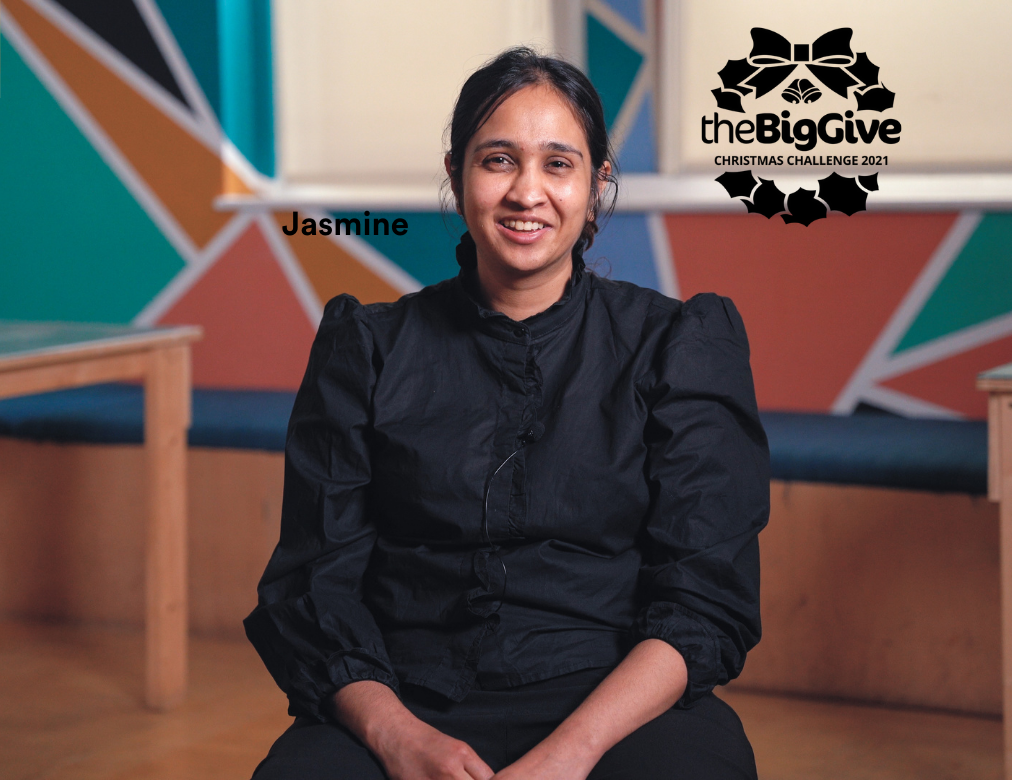
Donate today and double your donation
I was put in touch with Clean Break through the probation service to take me out of a bad environment.
I found Clean Break in lockdown, so I started on Zoom by joining groups of drama, singing, poetry. Whatever they had, I said ‘I’ll give it a go’. Since joining Clean Break, I’m enjoying meeting new people. All people with different needs who have been through different things. I enjoy hearing from others in the group and maybe you don’t know them, but you get used to seeing them and being with them on Zoom.
I’m also enjoying the opportunity to learn new skills. I’m learning things which before, I might have found a struggle. With this, I feel my confidence getting better, I feel more comfortable speaking.
I’m honest with the Clean Break team and I say I have learning difficulties and that I might struggle, but they are always there to support you. I want to thank them for helping me to come into the group. Clean Break gives you an opportunity to join in, it’s helped me to get away from trouble and given me the support I need to get my confidence back.
-
Please stand with Clean Break to help us reach and support more women like Jasmine on their journey from surviving to thriving. Every £1 donated through the Big Give Christmas Challenge from 30 November to 7 December will be doubled. That means one donation, twice the impact.
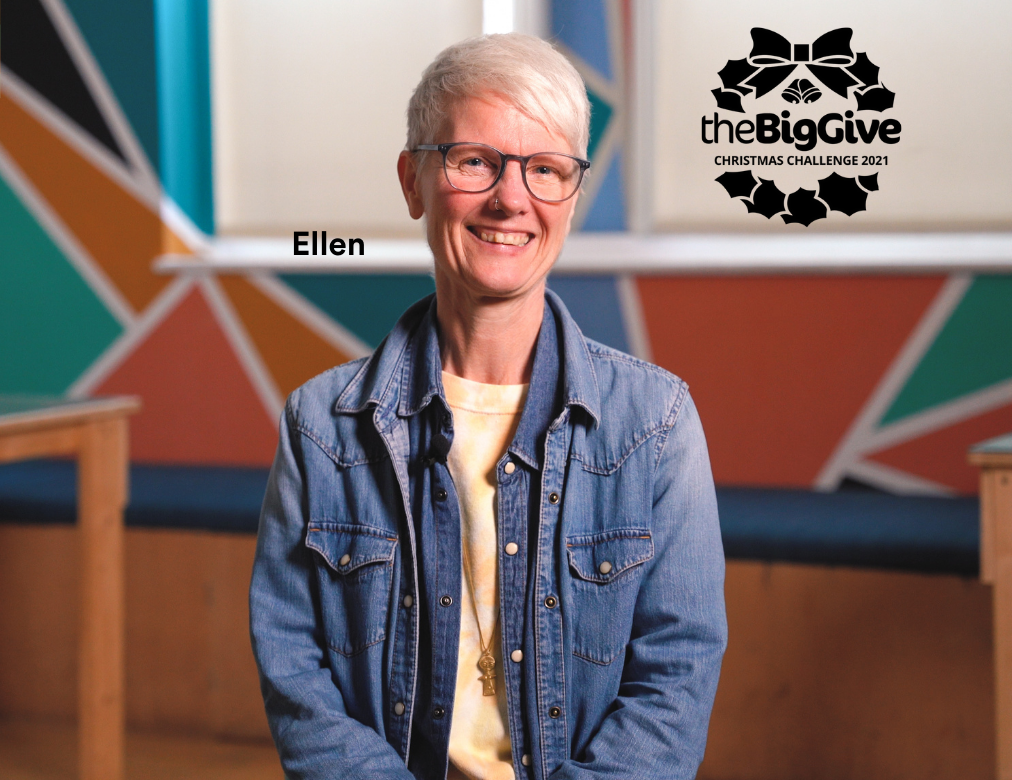
Donate today and your donation will be doubled
Clean Break has provided a safe space for me. Not only has it helped me to develop my skills as a performer and as a writer, but I have also received support with my housing situation, alongside a lot of emotional support from the Members Team.
Clean Break is...
Opportunity
Community
Inspiration
Hope
Energy
A doorway to prosperity
Life-giving
- Ellen, 2021
What did Clean Break mean to you during the pandemic?
It was a lifeline. As a women-only space, it has been invaluable. There are not many women only spaces, and that has made a really big difference on how I would be in workshops and sessions. For example, in theatre I would be much shyer around men than I am around women.
Tell us about the support you receive at Clean Break
It comes in a variety of ways. I’m offered the opportunity to participate in a range of different courses with tutors who have amazing skills to work with this demographic of women. These tutors offer 1 to 1’s outside of the session to help develop the work I create. I am also supported through art therapy sessions and being given mobile internet so I can access the programme remotely.
What is different about you since joining Clean Break?
I have more confidence in myself as a performer and a writer. I’m a poet, but a lot of the writing I have done whilst at Clean Break is script writing, which I used to find challenging. But since receiving positive feedback on my work in this area, this has helped me to develop, and it has given me confidence.
After a workshop or masterclass, or during it even, I feel inspired, energised and come to life. It wakes something up within me.
How does it feel to be part of the Clean Break community?
I feel proud to be part of this organisation because it does a lot to really help women change their lives.
Why do you think someone should support Clean Break in the Big Give Christmas Challenge?
Clean Break is a unique and innovative organisation, it supports women who would otherwise have been put on the scrap heap. Women that go to prison, the majority of which, go for short sentences and they lose everything during that time. When they come out of prison, they then have to totally rebuild their lives.
Clean Break offers an amazing opportunity for women to do just that through the creative arts. Women can start with their creativity here and some go on to university and become professional actors, writers, playwrights. There is no other organisation doing this work, it’s women-only and it’s so important to support women to develop and grow.
The support given through the Big Give will make a massive difference to many people’s lives. It will help support an incredible organisation with staff who are very well-experienced and well-trained to do what they do in supporting the women here. We have the best theatre and writing, and other creative practitioners come and lead courses and workshops. Clean Break is not able to do this without funding, so please give whatever you can.
-
Please stand with Clean Break to help us reach and support more women like Ellen on their journey from surviving to thriving. Every £1 donated through the Big Give Christmas Challenge from 30 November to 7 December will be doubled. That means one donation, twice the impact.